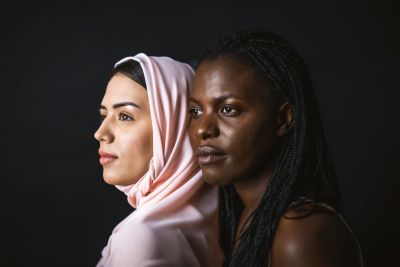Get in touch
555-555-5555
mymail@mailservice.com
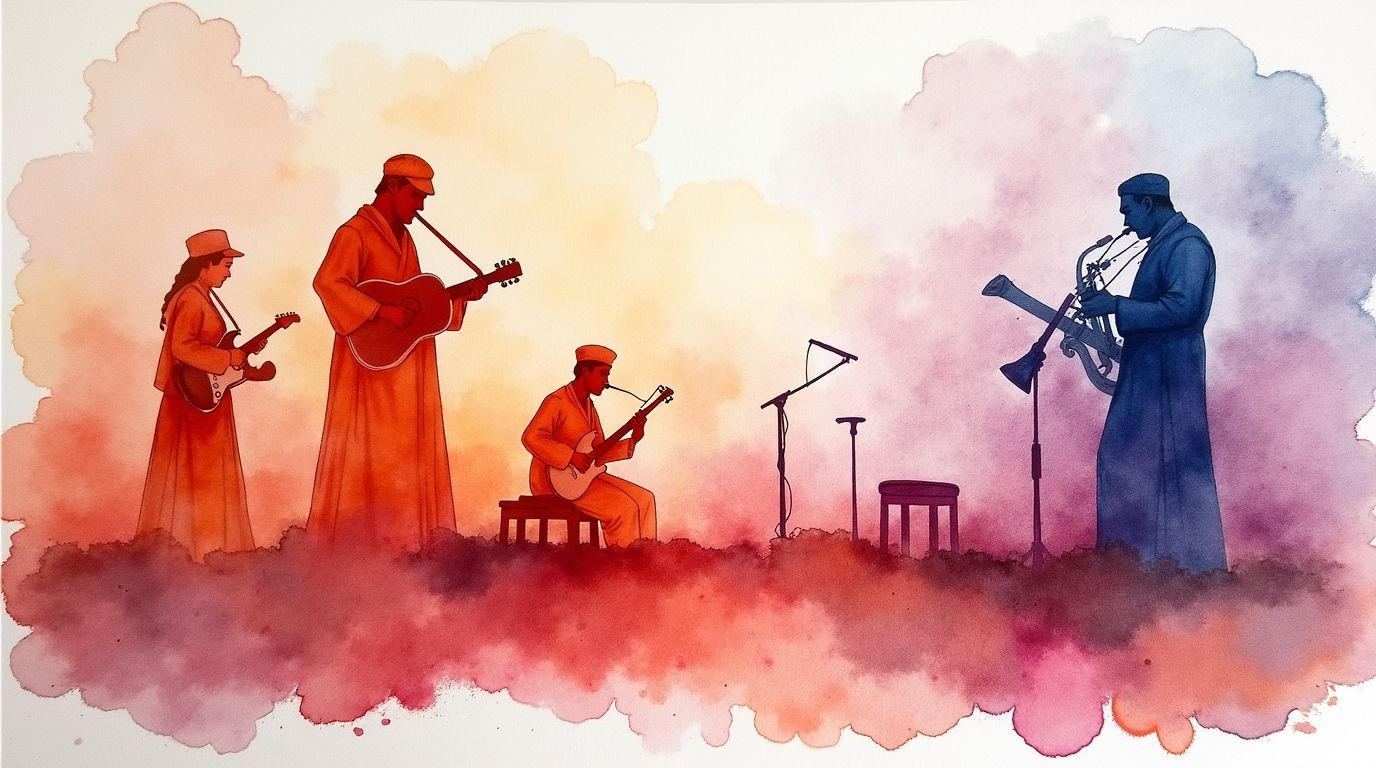
By bas meijers
•
April 2, 2025
There was a time when jazz filled my days—when a well-placed horn solo or a smoky bass line felt like a conversation between soul and sky. It wasn’t just music. It was movement, emotion, prayer without words. But somewhere along the path, I let it go. As I became more serious about my faith, I started questioning everything I consumed. Like many Muslims navigating their journey, I came across debates around music: is it haram? Is it a distraction? Does it serve the ego more than the soul? These questions echoed loud enough to drown out my jazz collection. Slowly, I stopped listening—not out of conviction, but out of uncertainty. But silence has its own way of inviting reflection. And in that quiet space, I began to wonder: Was I really abandoning something harmful… or something sacred? That question led me down a path I hadn’t expected—a deep dive into the history of jazz, and more specifically, the legacy of Muslim jazz musicians. What I found was both humbling and inspiring. This post is a tribute to those artists. To the ones who found God in rhythm, who made space for both saxophones and sujood, who turned improvisation into a kind of worship. It’s also an invitation—to look again at what we consider spiritual, and to remember that the soul doesn’t always speak in words. Sometimes, it swings. The Historical Connection: Islam & Jazz in the 20th Century To understand why so many jazz musicians embraced Islam, you have to step into the rhythm of the 1940s and beyond—when segregation still choked the streets of America, and Black artists were carving out space for identity, dignity, and soul. For many, jazz was already more than music. It was resistance. It was expression when the world tried to silence you. But something else was happening beneath the surface—a spiritual hunger. Amidst the chaos of racial injustice and the shallowness of fame, Islam offered something deeper: discipline, brotherhood, and a direct line to God. The Nation of Islam and the Ahmadiyya movement were especially influential during that time. These weren’t just fringe ideas—they were lifelines for Black men and women who had been denied their humanity by dominant Western systems. Islam gave them new names, new purpose, and a language of peace that matched the purity they longed to hear in their music. Artists like Art Blakey, Yusef Lateef, and Ahmad Jamal weren’t just converting—they were transforming. Their spirituality didn’t compete with their music; it sharpened it. You could hear it in the way they played—intentional, contemplative, soulful. In many ways, jazz and Islam were a perfect match. Both rely on improvisation within structure. Both ask you to listen closely. Both demand sincerity. In a time when the world treated Black identity like noise, Islam and jazz together became a symphony of self-respect. Art Blakey (Abdullah Ibn Buhaina): The Beat Behind the Belief When Art Blakey sat behind a drum kit, it wasn’t just about rhythm—it was about revelation. Every hit, every roll, every explosive solo felt like a heartbeat echoing with purpose. He wasn’t just playing jazz. He was preaching through it. Born in 1919 in Pittsburgh, Blakey came up in the golden era of jazz, and by the 1940s, he was already a force. But in 1947, a trip to West Africa changed everything. While touring with the legendary Billy Eckstine Band, Blakey spent time in Nigeria and Ghana, and it was there that he embraced Islam—taking the name : Abdullah Ibn Buhaina. Blakey didn’t talk much about the details of his conversion, but those close to him said Islam brought him a kind of grounding he hadn’t known before. In a world where Black artists were often exploited, Islam gave him dignity. In an industry known for chaos, it gave him order. And yet, Blakey didn’t separate his faith from his music. He poured it into his work—especially through his legendary group, The Jazz Messengers. That band wasn’t just a showcase of talent; it was a training ground, a spiritual school for generations of musicians who would go on to change jazz forever. Under Blakey’s leadership, The Jazz Messengers became a sanctuary of sorts. He held his players to high standards—not just musically, but ethically. Many say he was like an elder, guiding younger musicians not just through chord changes, but through life. Blakey himself once said : Music washes away the dust of everyday life. And for him, that dust included racism, injustice, spiritual restlessness—the grime of a world that too often forgot God. His drumming was thunderous, but it came from a place of calm. A place of faith. So when we talk about jazz as a spiritual path, we have to start with Art Blakey. Not just because he was a genius behind the drums, but because he showed us what it looks like when rhythm becomes remembrance—when belief lives in the beat. Yusef Lateef: The Seeker of Sound and Spirit If Art Blakey brought Islam to the drum kit, Yusef Lateef brought it to the cosmos. Born William Emanuel Huddleston in Chattanooga, Tennessee in 1920, Lateef was already a gifted musician by his teens. But it was in 1948 that he embraced Islam and took the name that would become iconic in both jazz and spiritual circles: Yusef Lateef. What set Lateef apart wasn’t just his skill—though he was a master of the tenor sax, flute, oboe, bassoon, and more—it was his relentless curiosity. He didn’t see jazz as a fixed form. To him, it was a vessel. A way to explore culture, history, and the divine. Lateef was one of the first jazz musicians to openly and intentionally incorporate non-Western instruments and scales into his music. He drew from Middle Eastern maqams, Asian folk traditions, African rhythms, and—crucially—Islamic spiritual concepts. His 1957 album "Prayer to the East" wasn’t just a title—it was a statement. A sonic turning toward Mecca. He saw music as an extension of adab’—Islamic etiquette, refinement, and inner discipline. He once said: My music is about reaching people with sound that comes from a pure place. Music should heal, not harm. That intention bled into every note he played. His compositions weren’t about impressing people with technical skill; they were about affecting the heart. In that way, his jazz felt more like dhikr—a remembrance of the Divine. Yusef Lateef taught us that Islam doesn’t limit creativity—it expands it. That jazz doesn’t have to be secular to be sacred. And that sometimes, the holiest sound is not a spoken prayer, but a flute played with sincerity. Ahmad Jamal: The Sound of Stillness In a world that often equates greatness with volume, Ahmad Jamal taught us that less can be more sacred. Born Frederick Russell Jones in Pittsburgh in 1930, Jamal converted to Islam in the early 1950s and took the name Ahmad Jamal. Like Blakey and Lateef, his journey into Islam wasn’t just a name change—it was a lifestyle, a philosophy, a code of presence and purpose that deeply shaped his music. Jamal’s playing was quiet, intentional, and precise—almost minimalist. But don’t let that fool you. Beneath the space and silence was a *force*. Miles Davis once said Jamal was one of his biggest influences, and if you listen close, you’ll hear it: the way Jamal played with time, with tension, with breath—it was like listening to someone meditate through melody. His album “Ahmad Jamal at the Pershing: But Not for Me” became a huge success in 1958, but Jamal never chased fame. Instead, he focused on integrity—refusing to let ego hijack his art. He was known for running a tight band, for avoiding the club scene drama, and for living a life rooted in spiritual discipline. Jamal once said in an interview: The philosophy of Islam has been so beautiful to me. It’s a religion of peace. It’s a religion of cleanliness. It’s a religion of tolerance. That calm strength? You can feel it in every recording. In many ways, Jamal’s music was a reminder that faith doesn’t always shout. Sometimes, it whispers with elegance. To be continued :

By bas meijers
•
March 28, 2025
Lost in Finding Religion: A Journey Beyond Borders For those who seek truth, the path can feel like a paradox. We search for spiritual enlightenment, only to find ourselves enclosed within walls built by the very teachings that once opened our hearts. Each religion, with its beauty and wisdom, also seems to hold an unspoken rule: that the light you have found must remain within its shell, never to be shared beyond its borders. I have walked this journey myself. I was raised without a certain faith. It shaped my childhood, gave no rhythm to my days, weeks, months or years, and offered me a hollow, empty sense of belonging. Finding Islam, the familiar call to prayer, the rituals of Ramadan, the sacred stories passed from generation to generation—these are all part of my current foundation that holds me. And yet, as I grew older, a quiet restlessness stirrs within me. My heart begins to lean toward broader horizon, to ask questions that do not have easy answers. I ain't looking to leave anything behind; I am simply seeking more. When I red about the Bahá'í Faith, it wasn’t in a moment of rejection—it was in a moment of expansion. The teachings of unity, the oneness of humanity, and especially the concept of "progressive revelation" opened a new dimension of understanding for me. The idea that all prophets—Muhammad, Jesus, Moses, Buddha, Krishna, Bahá'u'lláh—brought the same divine light in forms that suited their time... it made sense. It wasn’t in conflict with what I knew from the Qur’an—it added to it, deepened it. Not a new religion for me, but a broader lens through which to appreciate the wisdom I already held. Still, I didn’t want to abandon Islam. So I did not. The daily rhythm of Salat, I am supposed too, keeps me focussed and awake, the five prayers, anchors me. They bring me back to myself, and to God. They are not just rituals—they are a kind of homecoming. In those moments of silence, of surrender, I find clarity. And when I open the Qur’an, I find reminders that reinforce my path: “Indeed, this Qur’an guides to that which is most upright and gives good tidings to the believers who do righteous deeds that they will have a great reward.” — Surah Al-Isra (17:9) And another verse that always speaks to my soul when I start to feel pulled in too many directions: “And do not be like those who forgot Allah, so He made them forget themselves. Those are the defiantly disobedient.” — Surah Al-Hashr (59:19) In Sufi thought, I found a bridge—a way to explore deeply without losing my roots. Ibn Arabi wrote: "Do not attach yourself to any particular creed exclusively... The object of your search should be the Truth itself, and not any particular embodiment of it." That line gave me permission to learn from many places while staying devoted to my own. But Sufism doesn’t only encourage openness—it also emphasizes the depth of one’s own well. Rumi, another master of the inward path, once said: "You were born with wings. Why prefer to crawl through life?" And yet, he also reminded: "The way of the Sufi is the way of devotion. You must stay in one place long enough for the truth to enter you." That speaks to me now more than ever. Because the truth is—religions, in their earthly forms, can sometimes discourage followers from looking beyond. They can become protective, fearful of influence, concerned with boundaries. But the soul is not built for confinement. It is built for longing, and for flight. Even so, I’ve learned that while openness is essential, so is rootedness. You can explore other mountains, but you need one to climb. You can taste many waters, but you need one well to draw from daily. Spiritual growth takes time. It takes return. There is a beauty in continuity. Just as a tree grows deeper roots by remaining planted, so too do we, by sticking with the path that grounds us. You can open your windows to the world, but you still need a home to return to. So perhaps the real challenge is balance. To stay faithful, without becoming closed. To stay open, without becoming scattered. To allow the light from many traditions to illuminate your path, while walking it with both feet planted in your own. The Light Beyond the Walls I built my house in the garden of prayer, Five times a day, I returned there. The wind would knock, carrying songs From temples, churches, foreign tongues. I listened—not to betray my roof, But to know if all flames came from one truth. A voice said: “Drink where the river runs, But do not forget where your well begun.” I met the traveler with many names, He spoke of Prophets as one flame. I saw no war in his reflection, Only mirrors of divine connection. Yet still, I missed the scent of my dawn— The call to prayer, the peace of Qur’an. For though I’d tasted other skies, It was this moon that steadied my eyes. Ibn Arabi whispered through silence deep: Don’t marry form; seek what it keeps. But Rumi touched my heart more still: Stand in your love. Let the world refill. O seeker—yes, roam, but don’t uproot. Let your branches stretch, but guard your root. The Truth is vast, but so is the Way That brought you here, that taught you to pray. One lamp may light a thousand more, But it must remain on the prayer room floor. Dance with the stars, wander the sea— But return to the ground where you learned to be.
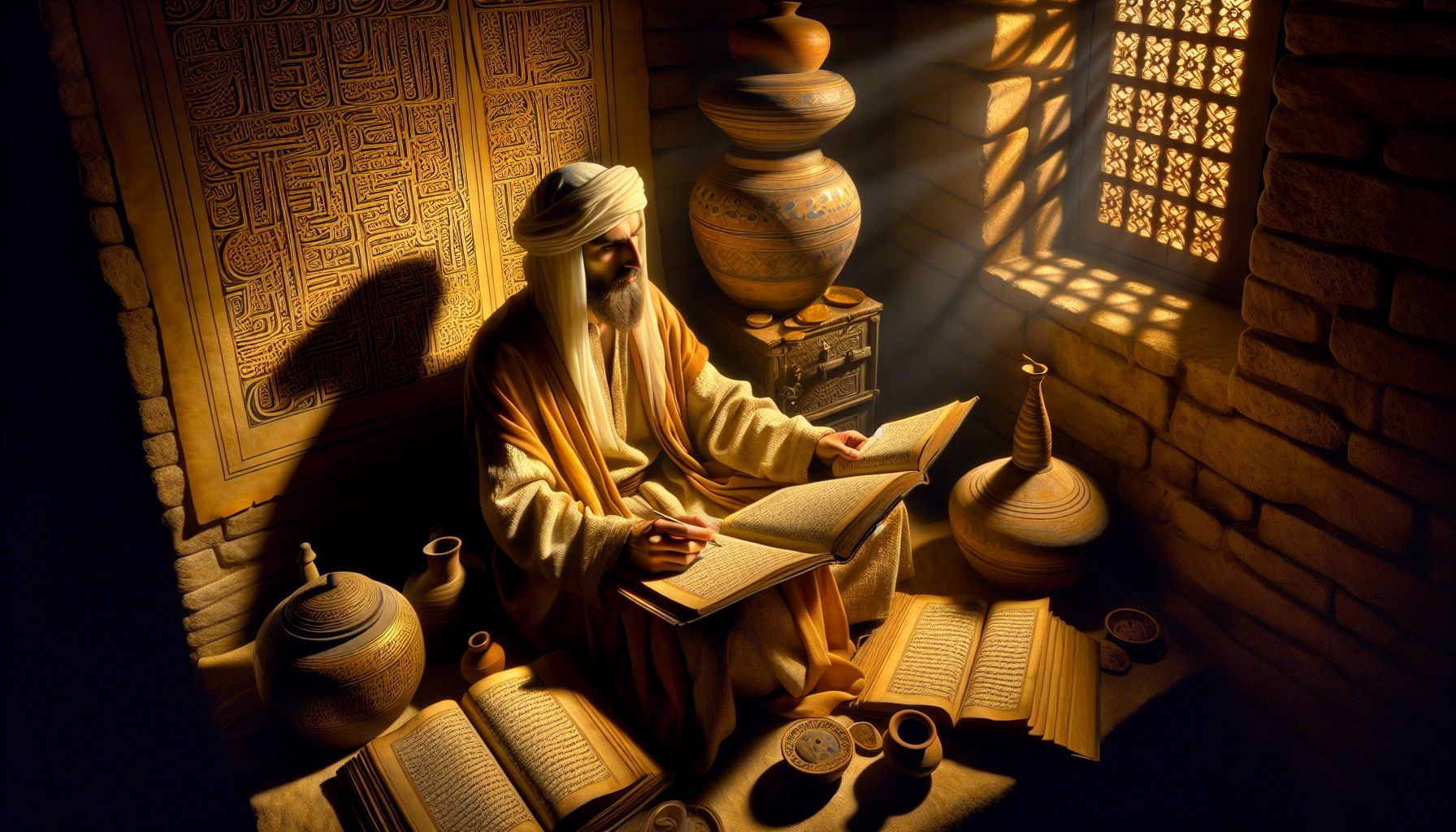
By bas meijers
•
March 8, 2025
The Intellectual and Historical Foundations of Imam al-Nawawi’s Riyadh al-Salihin Imam Yahya ibn Sharaf al-Nawawi (1233–1277 CE) was a towering figure in Islamic scholarship whose contributions to hadith, jurisprudence, and spirituality remain influential. This post explores the intellectual background of al-Nawawi prior to his compilation of Riyadh al-Salihin, tracing his formative years, scholarly influences, and the socio-religious climate that motivated him to produce this seminal work. By examining his methodology and objectives, this study elucidates how Riyadh al-Salihin was conceived as a response to ethical and spiritual challenges in the Muslim community of his time. Introduction The study of hadith literature and its role in shaping Islamic ethical and moral philosophy has long been a cornerstone of Islamic intellectual history. Among the scholars who significantly contributed to this field is Imam al-Nawawi, whose work Riyadh al-Salihin (The Gardens of the Righteous) is one of the most widely studied hadith collections. To understand the motivations and intellectual trajectory that led to its compilation, it is crucial to examine al-Nawawi’s formative years, his scholarly environment, and the prevailing social and religious circumstances of 13th-century Syria. Al-Nawawi’s Early Life and Educational Development Born in the town of Nawa in the region of southern Syria, al-Nawawi exhibited an extraordinary inclination toward knowledge from an early age. At approximately 18 years old, he moved to Damascus, a leading center of Islamic learning, where he enrolled in Madrasa al-Rawahiyya. Under the tutelage of some of the most distinguished scholars of the time, he immersed himself in an intensive study of the Islamic sciences, particularly hadith, fiqh (jurisprudence), and Arabic linguistics. Al-Nawawi’s scholarly methodology was characterized by rigorous study habits and asceticism. Historical reports suggest that he would study up to 12 lessons daily, covering multiple disciplines. His engagement with both textual sources and oral transmission of knowledge cemented his reputation as a polymath deeply rooted in the classical traditions of Islamic legal and ethical thought. The Socio-Religious Context of 13th-Century Syria The period in which al-Nawawi lived was marked by political instability and moral decay in certain segments of the Muslim society. The Mongol invasions had left parts of the Islamic world in disarray, while within the Mamluk-controlled regions, scholars were grappling with the challenge of preserving religious knowledge and moral conduct amidst political turbulence. Al-Nawawi was particularly concerned with the decline of personal piety and ethical consciousness among Muslims. His writings often emphasize the necessity of reviving core Islamic values, such as sincerity (ikhlas), patience (sabr), and humility (tawadhu ), as mechanisms for spiritual and communal renewal. The Intellectual Motivation Behind Riyadh al-Salihin Al-Nawawi’s decision to compile Riyadh al-Salihin was driven by a desire to produce an accessible yet comprehensive guide to ethical and spiritual development. Unlike other hadith collections primarily focused on jurisprudential rulings (ahkam), Riyadh al-Salihin centers on the refinement of character (tazkiyat al-nafs). The collection is systematically arranged into thematic chapters covering virtues such as sincerity, patience, gratitude, and benevolence, with hadith selected to offer practical moral guidance. His methodological approach in compiling this work reveals an intent to bridge the gap between theoretical knowledge and applied ethics. By selecting hadiths that emphasize moral conduct and personal discipline, al-Nawawi sought to create a text that was not only scholarly but also practical for the general Muslim population. The arrangement of hadiths follows a pedagogical structure designed to cultivate a gradual internalization of Islamic virtues. Part one in a nutshell The intellectual and social forces that shaped al-Nawawi’s scholarly pursuits culminated in the compilation of Riyadh al-Salihin as a response to both the ethical shortcomings and spiritual needs of the Muslim community of his time. His work remains an enduring testament to the interplay between hadith scholarship and ethical philosophy, serving as a cornerstone for Islamic moral instruction across generations. Understanding al-Nawawi’s motivations provides deeper insight into how classical Islamic scholarship was not merely a theoretical pursuit but a lived engagement with the moral and social realities of the time. References - Al-Nawawi, Yahya ibn Sharaf. Riyadh al-Salihin. - Makdisi, George. The Rise of Colleges: Institutions of Learning in Islam and the West. - Ibn Hajar al-Asqalani. Al-Durar al-Kamina.
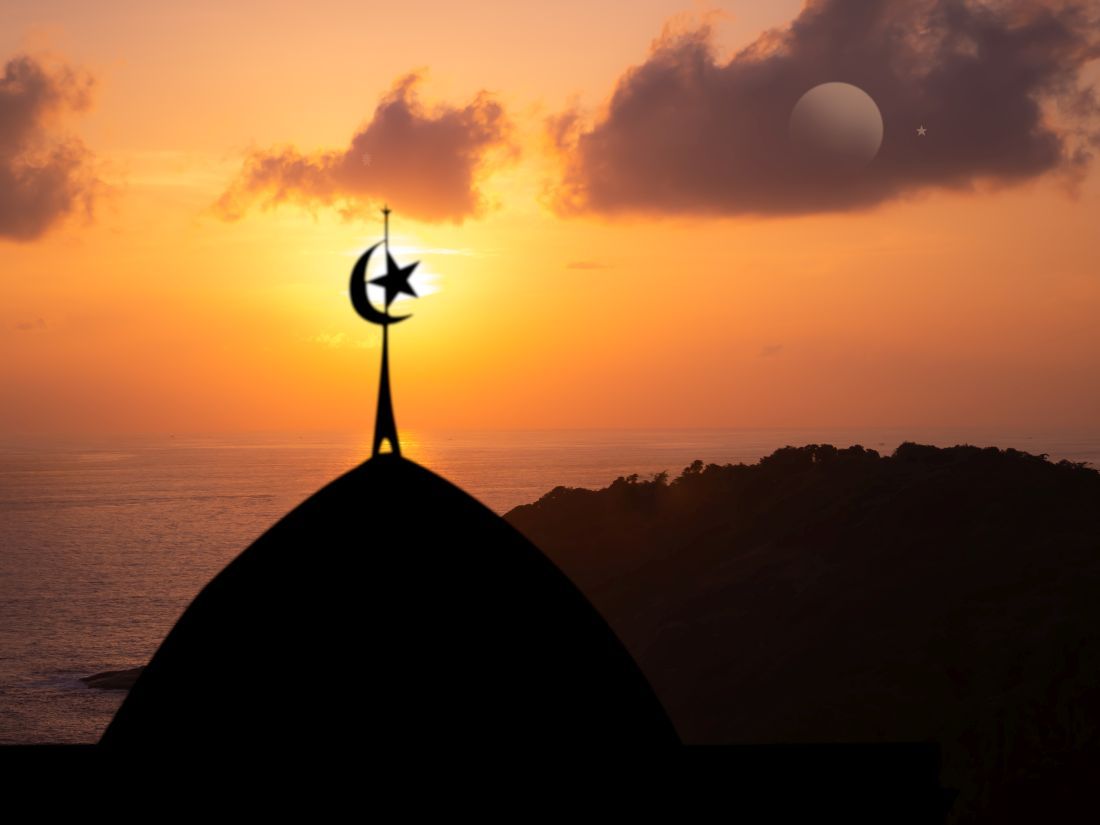
By Bas Ibrahim Meijers
•
February 28, 2025
🌙 Ramadan Mubarak! 🌙
The crescent moon has been sighted, marking the beginning of the holy month of Ramadan tomorrow! A time for reflection, prayer, and self-discipline, Ramadan brings an opportunity to purify the heart, strengthen faith, and spread kindness.
May this month be filled with blessings, peace, and spiritual growth for all. Let’s embrace this sacred time with gratitude, patience, and compassion. Wishing everyone a beautiful and fulfilling Ramadan!
#RamadanMubarak #RamadanKareem #Blessings #Faith #Fasting #Prayer #CrescentMoon #Peace #SpiritualJourney
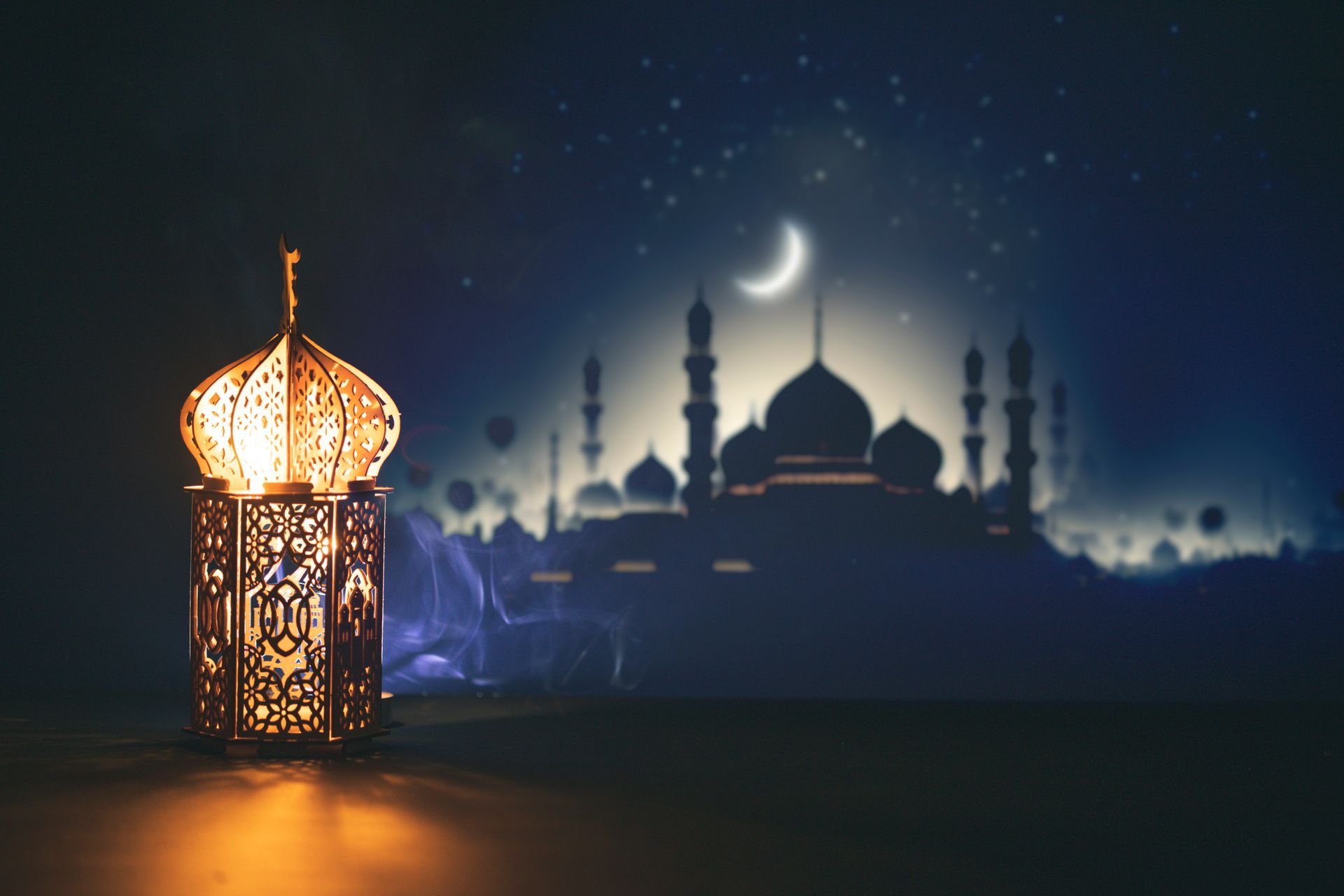
By bas meijers
•
February 24, 2025
1. Laylat al-Qadr: The Night of Power The main reason the last ten nights are special is because of Laylat al-Qadr (The Night of Power), which is hidden within them. Allah mentions this night in the Quran: Laylat al-Qadr is better than a thousand months ( Al-Qadr, 97:3*) This means that worship on this one night is more valuable than worship done for over 83 years! Since the exact night is unknown, Muslims increase their devotion in the last ten nights to make sure they don’t miss it. 2. The Prophet’s ﷺ Practice The Prophet Muhammad ﷺ himself emphasized the importance of these nights: - He increased his worship in the last ten nights more than at any other time of the year. - He performed I‘tikaf (spiritual retreat) every year in these nights. - He said: "Seek Laylat al-Qadr in the odd nights of the last ten nights of Ramadan."(Bukhari & Muslim) Since Laylat al-Qadr could fall on any of the odd nights (21st, 23rd, 25th, 27th, or 29th), Muslims dedicate all ten nights to worship to ensure they catch it. 3. The Spiritual Benefits of the Last Ten Nights - A chance for complete forgiveness – The Prophet ﷺ said: > "Whoever stands (in prayer) on Laylat al-Qadr with faith and seeking reward, his past sins will be forgiven." (Bukhari & Muslim) -A time when dua is most accepted – The Prophet ﷺ recommended making this dua frequently: > O Allah, You are the Most Forgiving, and You love to forgive, so forgive me." (Tirmidhi) - The final opportunity to maximize Ramadan’s blessings – Since Ramadan is ending, this is the last chance to seek rewards before it is gone for another year. Conclusion The idea of the last ten nights being the most powerful comes from the Quran and the teachings of the Prophet ﷺ, not from later scholars or traditions. The mystery of Laylat al-Qadr encourages believers to engage in intensive worship, making these nights the most spiritually significant time of the year.

By bas meijers
•
February 23, 2025
One of the most profound teachings I have come across is from Imam Al-Ghazali’s " Ihya’ Ulum al-Din" (The Revival of Religious Sciences), where he beautifully explains the deeper purpose of fasting beyond just abstaining from food and drink. As it trulyu is my first ramadan as a muslim, i wished to inform myself, and the deeper you go the bigger it becomes in beauty. It gave already so much strength to stay on this path The Three Levels of Fasting Al-Ghazali categorizes fasting into three levels, emphasizing that its true essence lies in spiritual purification: 1. The Basic Fast (`Sawm al-Umum`) – The common level, where one refrains from eating, drinking, and sexual relations during the day. 2. The Special Fast (`Sawm al-Khusus`) – A higher level, where one also controls their tongue, eyes, ears, and thoughts, avoiding gossip, backbiting, and distractions. 3. The Fast of the Elite (`Sawm Khusus al-Khusus`) – The deepest form, where even the heart is free from worldly concerns, focusing entirely on God and spiritual connection. As I go through my first Ramadan, I aspire to move beyond just the physical fast and truly embrace the inner dimensions of self-discipline and mindfulness. The Wisdom Behind Fasting According to Al-Ghazali, fasting is not just a ritual but a training for the soul. Some of its key purposes include: - Breaking the hold of the ego (`nafs`) – by denying constant indulgence in food and comfort, we learn self-control. - Developing patience (`sabr`) – fasting strengthens our willpower, teaching endurance in all aspects of life. - Feeling empathy for the poor – experiencing hunger allows us to appreciate the struggles of those less fortunate and increases generosity. - Strengthening sincerity (`ikhlas`) – unlike other acts of worship, fasting is hidden; only Allah knows if we are truly fasting, making it a deeply personal form of devotion. Laylat al-Qadr: Seeking the Night of Power Another key moment that Al-Ghazali emphasizes is "Laylat al-Qadr" , the night of great spiritual significance in the last ten nights of Ramadan. It is a time to: - Seek forgiveness and make heartfelt du’a. - Engage in deep worship, reciting the Quran and praying long into the night. - Detach from worldly distractions and focus on spiritual elevation. The Importance of Community One of the things that has made my first Ramadan special is the sense of brotherhood and sisterhood at the mosque. Al-Ghazali also highlights the role of good company in spiritual growth, and sharing iftar with others truly strengthens that bond. A Journey Beyond Hunger As I continue this journey, I realize that fasting is not just about feeling hunger but about gaining closeness to Allah, purifying the heart, and developing gratitude. I hope to implement Al-Ghazali’s teachings by striving for a meaningful fast that goes beyond the physical and touches the soul. Yet i got intriqued by those ten last nights.......why have those nights such spiritual strength and be prayed in during the night by many Muslims.....lets find out.....see you in Pt 2
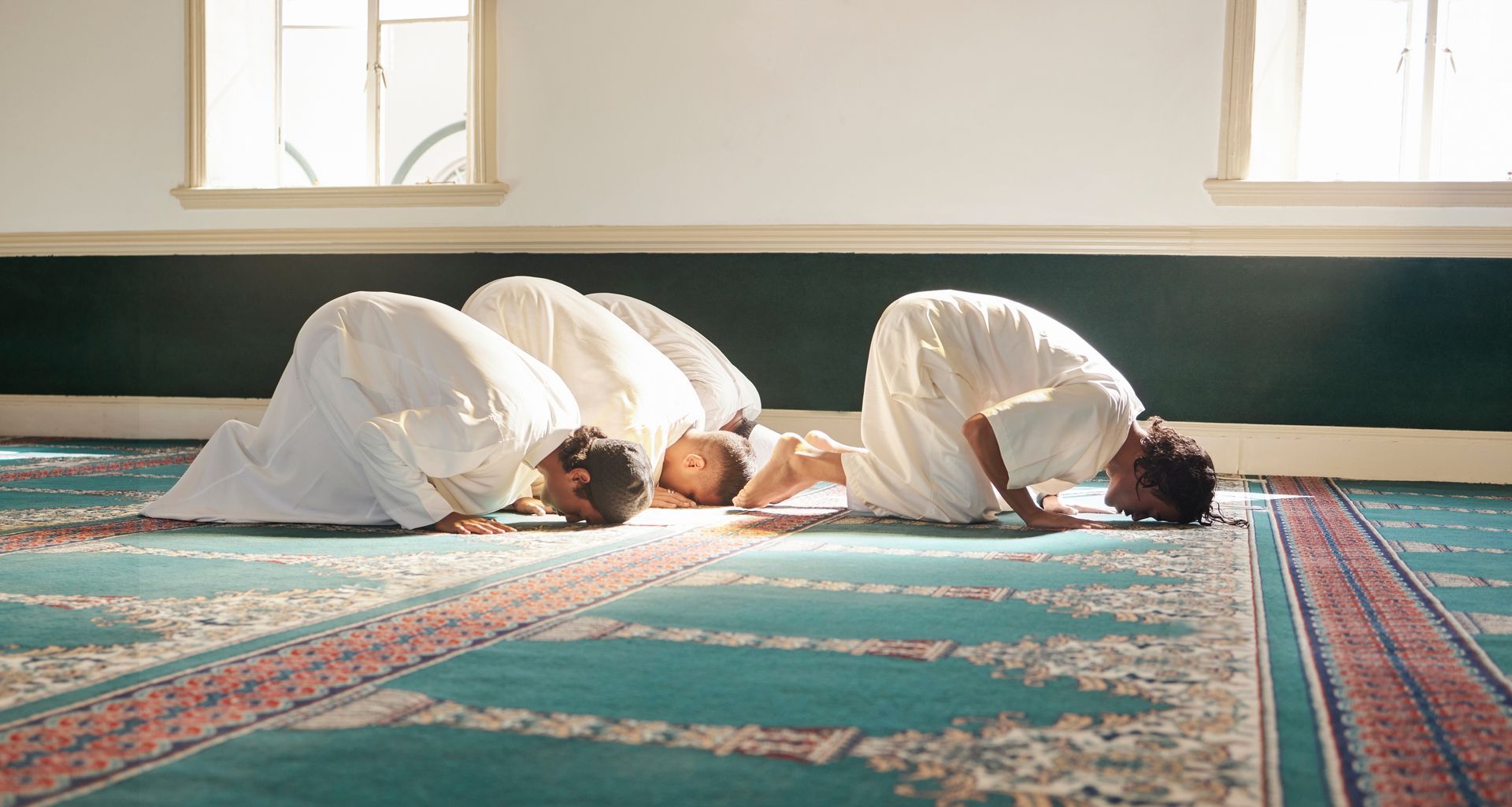
By bas meijers
•
February 23, 2025
Before embracing Islam, I saw surrender as something negative, a forced resignation. But through my journey, I realized that surrendering to Allah is not about giving up—it’s about gaining clarity, certainty, and inner peace. In this post, I’ll explore how Islam redefines surrender, how it harmonizes with free will, and how embracing this concept transformed my life. The Western View of Surrender vs. the Islamic Perspective Growing up, I was taught that success comes from taking control of my life, setting my own rules, and never backing down. In Western philosophy, surrender often implies defeat. Think of Nietzsche’s idea of the “will to power” or the modern self-help movement that tells us to “manifest” our desires. The underlying message is clear: control equals power. But Islam presents a different perspective. True power doesn’t come from controlling everything—it comes from recognizing our limits and trusting in the One who has ultimate control. Surrender in Islam (Islam itself means “submission”) isn’t about passivity; it’s about actively choosing to trust Allah’s wisdom over our limited understanding. The Qur’an repeatedly invites us to reflect on this concept: “… And whoever relies upon Allah – then He is sufficient for him…” (Qur’an 65:3) Surrender in this sense isn’t a weakness—it’s the key to real strength. Free Will and Divine Decree – A Paradox? One of the biggest questions I had before reverting was: If God has already written my fate, do I really have free will? It seemed contradictory. But Islam provides a nuanced understanding of this balance between divine decree (Qadr) and human choice. Imagine you’re traveling on a road. You can choose different paths, but the mapmaker already knows where each one leads. That’s how I came to understand Qadr. We make choices, but Allah’s knowledge is infinite. That doesn’t mean our choices are meaningless—it just means they exist within a framework only He fully understands. Through this, I realized that surrendering to Allah doesn’t mean giving up control—it means making the best choices I can while trusting that He has already accounted for everything. This perspective shifted the way I approached life’s uncertainties. Personal Reflections – How Surrendering Transformed My Life When I first accepted Islam, surrender didn’t come easy. I had spent years shaping my own path, believing that my success or failure was entirely in my hands. But life doesn’t always go as planned, and the more I tried to control everything, the more anxious and restless I became. The moment I truly let go and placed my trust in Allah, everything changed. It wasn’t that my problems disappeared—it was that my heart found peace despite them. I stopped overthinking every decision, fearing the unknown, and dwelling on regrets. I found comfort in knowing that whatever happens, as long as I do my part, Allah’s plan is always better than mine. At first, this shift felt unnatural. I had been conditioned to believe that success meant never letting go of control. But as I started to surrender to Allah’s wisdom, I realized that real success isn’t about controlling outcomes—it’s about aligning my efforts with faith and letting go of anxiety about the results. One of the biggest struggles I faced was patience. Trusting Allah’s plan meant accepting that things wouldn’t always unfold on my timeline. There were moments of doubt, times when I wanted immediate answers, and days when I questioned whether I was strong enough to let go. But through prayer, reflection, and the support of fellow Muslims, I slowly learned to embrace patience as part of surrender. Now, surrendering to Allah shapes every aspect of my life. When faced with difficult decisions, I don’t panic or obsess over every detail—I do my best and leave the rest to Him. When challenges arise, I remind myself that hardship is temporary and always carries wisdom. And most importantly, I’ve learned that true peace doesn’t come from controlling life, but from trusting the One who already has everything under control. I used to think surrender meant losing myself. Now, I see it as the path to truly finding myself. The Ultimate Intellectual Submission – Embracing Islam with Reason One misconception is that Islam requires blind faith. But in reality, the Qur’an constantly encourages us to think, question, and reflect. “Indeed, in the creation of the heavens and the earth and the alternation of the night and the day are signs for those of understanding.” (Qur’an 3:190) Many reverts, including myself, didn’t come to Islam emotionally—we came through intellectual curiosity. We studied, asked difficult questions, and sought answers. And the deeper I looked, the clearer the truth became. Surrender in Islam isn’t abandoning reason; it’s acknowledging that reason alone has its limits. Just like we trust a doctor when we’re sick, trusting Allah means recognizing that He sees the full picture when we don’t. The Journey of Unlearning – Shedding Old Beliefs to Embrace True Surrender Reverting to Islam isn’t just about learning new principles—it’s about unlearning so much of what we once believed to be true. Before Islam, my worldview was shaped by a culture that valued personal ambition above all else, that told me happiness was mine to create, and that surrendering meant weakness. Letting go of these ingrained beliefs wasn’t easy. The most difficult part of unlearning was my pride. I had spent a lifetime believing that I was the master of my destiny. It took time to accept that while I had free will, ultimate control belonged to Allah. Surrendering meant breaking the illusion of self-sufficiency and trusting in something greater than myself. At first, there was resistance—doubt crept in. Had I really been wrong all these years? Was it truly possible that peace could be found in giving up control? But as I slowly let go, I found that surrendering wasn’t about losing freedom—it was about gaining it. No longer enslaved by the anxiety of controlling everything, I found peace in trusting that Allah’s plan was already in motion. Now, I see the world differently. I no longer measure success by material achievements but by my connection with my Creator. My confidence doesn’t come from societal validation but from the certainty that Allah is guiding me. Unlearning was difficult, but what I gained in return—a sense of purpose, peace, and certainty—was worth far more than anything I left behind. True Strength Lies in Submission Surrendering to Allah doesn’t mean losing yourself—it means freeing yourself from the illusion of control. It means finding peace in His plan rather than exhausting yourself trying to control the uncontrollable. As a revert, I’ve learned that true strength isn’t in fighting fate but in trusting the One who knows best. And in that trust, I’ve found something I never had before: certainty. If you’re struggling with the concept of surrender, I encourage you to reflect. Is it really control that brings peace, or is it trust? The answer might just change everything.

By bas meijers
•
February 22, 2025
The Nature of Suffering Seneca's quote, "We suffer more often in imagination than in reality," encourages reflection on the nature of human suffering. This idea can be further explored through the following perspectives: Psychological Aspect: Seneca highlights how our thoughts can amplify fears and anxieties. Cognitive Behavioral Therapy (CBT), a modern psychological approach, echoes this sentiment by suggesting that altering negative thought patterns can lead to improved emotional well-being. Islamic View on Suffering: In Islam, suffering is often seen as a test from Allah. The Quran states, “Do not lose hope, nor be sad” (Quran 3:139), reminding believers that trials are a part of life. The concept of patience (Sabr) is emphasized, encouraging individuals to endure hardships with faith. The Role of Preparation and Opportunity Seneca's assertion that "Luck is what happens when preparation meets opportunity" underscores the importance of diligence: Practical Application: This quote can inspire individuals to take proactive steps in their lives, whether in education, career, or personal development. Setting clear goals and working towards them aligns with both Stoic and Islamic values. Islamic Teachings on Effort: The Quran encourages striving for success through hard work. The Prophet Muhammad (peace be upon him) stated, “The seeker of knowledge is in the path of Allah.” This illustrates that effort in pursuit of knowledge and growth is highly regarded in Islam. The Concept of Wealth and Contentment Seneca’s quote, "It is not the man who has too little, but the man who craves more, that is poor," invites a deeper examination of materialism: Philosophical Reflection: This perspective challenges societal norms that equate wealth with happiness. It encourages a shift towards valuing experiences and relationships over material possessions. slamic Perspective on Wealth: Islam teaches that true wealth lies in contentment. The Prophet Muhammad (peace be upon him) emphasized this through his teachings, stating that a rich person is one who is satisfied with what they have. The focus on gratitude (Shukr) helps cultivate a sense of abundance, regardless of material circumstances. Historical Context of Islamic Scholars The contributions of scholars like Ibn Qayyim Al-Jawziyya and Al-Ghazali provide rich insights into the relationship between heart, mind, and spirituality: Ibn Qayyim Al-Jawziyya: His works often explore the inner dimensions of faith and the importance of connecting with Allah. He believed that the heart is the essence of human experience and that true happiness stems from this connection. Al-Ghazali: Known for his synthesis of philosophy and Islamic theology, Al-Ghazali emphasized the importance of self-reflection and the pursuit of knowledge. He advocated for a balanced life where material pursuits are harmonized with spiritual growth. The interplay between Seneca’s Stoic philosophy and Islamic teachings offers a profound understanding of how to navigate life's challenges. Both traditions encourage self-awareness, resilience, and a focus on what truly matters—inner peace and connection with the divine. By integrating these timeless teachings, individuals can cultivate a more meaningful and fulfilling life, enriched by the wisdom of both worlds. Seneca's Views on Death and Islamic Teachings Seneca on DeathSeneca had a rather unique perspective on death, viewing it not with fear, but as a natural part of life. He famously stated, “Death is not to be feared, but to be understood.” This reflects his Stoic belief that understanding the inevitability of death can lead to a more fulfilling life. He argued that by contemplating death, we can appreciate the present moment and live with intention. In his letter to Lucilius, Seneca remarked, “It is not that we have a short time to live, but that we waste a lot of it.” This encourages individuals to reflect on how they spend their time, urging them to seize the day (Carpe Diem).Islamic Teachings on DeathIslam shares a similar perspective, viewing death as a transition rather than an end. The Quran teaches that every soul will taste death, and it is a part of Allah's divine plan. The Prophet Muhammad (peace be upon him) reminded his followers that life is a temporary abode, and death is merely a passage to the Hereafter. He said, “Remember often the destroyer of pleasures,” referring to death, which serves as a reminder to prioritize what truly matters in life.While contemplating death may seem somber, both Seneca and Islamic teachings encourage a positive outlook. They advocate for living a life of purpose and virtue, understanding that our time is limited.A Light-Hearted Take on DeathNow, let’s add a sprinkle of humor! After all, laughter can be a great way to cope with the heavier subjects in life. Imagine Seneca and the Prophet Muhammad sitting together, sharing a light moment. Seneca might say, “You know, I used to fear death until I realized it was just like a bad haircut—unavoidable and often regrettable, but not the end of the world!” To which the Prophet might chuckle and respond, “Just remember, it’s not about how you leave the world, but how you live in it! And let’s aim for a stylish exit!”This humorous exchange reminds us that while death is a serious topic, it can be approached with a sense of lightness. Both traditions encourage us to live fully, find joy in the present, and maintain a sense of humor about life’s inevitable moments.ConclusionIn both Seneca’s Stoic philosophy and Islamic teachings, the contemplation of death serves as a powerful motivator to live meaningfully. By understanding death as a natural part of life, we can embrace our time on Earth with purpose and joy. And as we navigate this journey, a good laugh here and there can remind us not to take ourselves too seriously—after all, life is a precious gift worth celebrating!

By bas meijers
•
February 21, 2025
"In the Eyes of the Forgotten" I remember the ones who turned away, The friends who left, the strangers who stayed, The parents who couldn’t see my pain, The doors that closed, time and again. The mentors who doubted what I could be, The bullies who mocked and belittled me. The siblings who laughed, the friends who fled, The ones who left me alone in my dread. I was pushed aside, left in the dark, Hiding my wounds, my silent mark. Denied the love I so desperately sought, While they ignored me, lost in their thought. No one looked, no one came near, While I stood waiting, drowning in fear. But through it all, I found only you, In the quiet corners, where none else knew. I saw you, though the world did not see, Through the pain, through the silence, through all of me. I am one of you, you are one of me, Together, we rise—together we’re free. In silence, I bled, in solitude I cried, In my heart, the hope never died. Struggling with my own insecurities, Fighting against my own miseries. Longing for a place where I could be, Yet the world never took notice of me. It passed me by, too busy to care, Leaving me broken, caught in despair. But now I stand, no longer small, No longer the one who stumbled and fell. For I am the one who’s learned to see, Beyond the pain, beyond what was meant to be. I am the solution, not the cause, I’ve healed my wounds, I’ve dropped my flaws. They told me, “There’s no place for you here,” And I asked, “Then where do I go, my dear?” But silence was their only reply, And still, I reached for the sky. I am the forgotten, yes, that’s true, But now I rise, with a strength so new. From this moment, I will not hide, I will no longer stand on the sidelines, denied. I am the Ummah, in faith, I stand, A part of something much greater, hand in hand. The world may not have seen me before, But now, I knock and open the door. For the Prophet spoke of those who fight, Not with swords, but with hearts full of light. The most beloved to Allah, they say, Are those who guide others along the way. I am not broken, I am whole, I am the one who has found my soul. So let them remember, let them see, I am the one who has come to be. I am the Ummah, strong and true, I belong, and I know you do too.
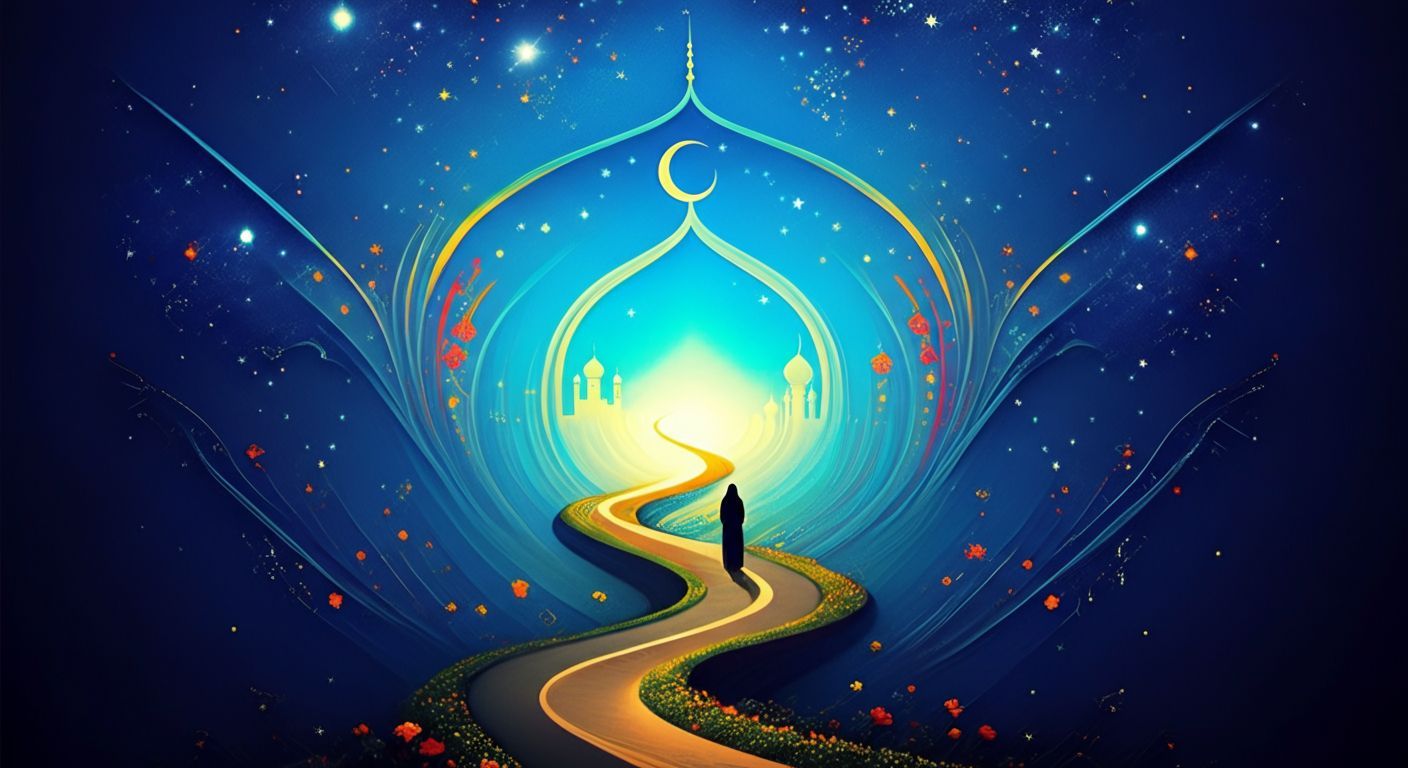
By bas meijers
•
February 15, 2025
In this heartfelt and deeply personal blog post, I open up about the struggles of being a new Muslim in a society that often misunderstands or rejects my faith. While Islam has brought me immense spiritual growth, I also face the pain of discrimination, loneliness, and even distance from loved ones. Through reflection on my journey and powerful Qur’anic verses, I share the silent battle between faith and external pressures—seeking not validation, but understanding. May this piece resonate with those who struggle in silence and serve as a reminder that with hardship comes ease.
**Post Description:**
In this heartfelt and deeply personal blog post, I open up about the struggles of being a new Muslim in a society that often misunderstands or rejects my faith. While Islam has brought me immense spiritual growth, I also face the pain of discrimination, loneliness, and even distance from loved ones. Through reflection on my journey and powerful Qur’anic verses, I share the silent battle between faith and exte
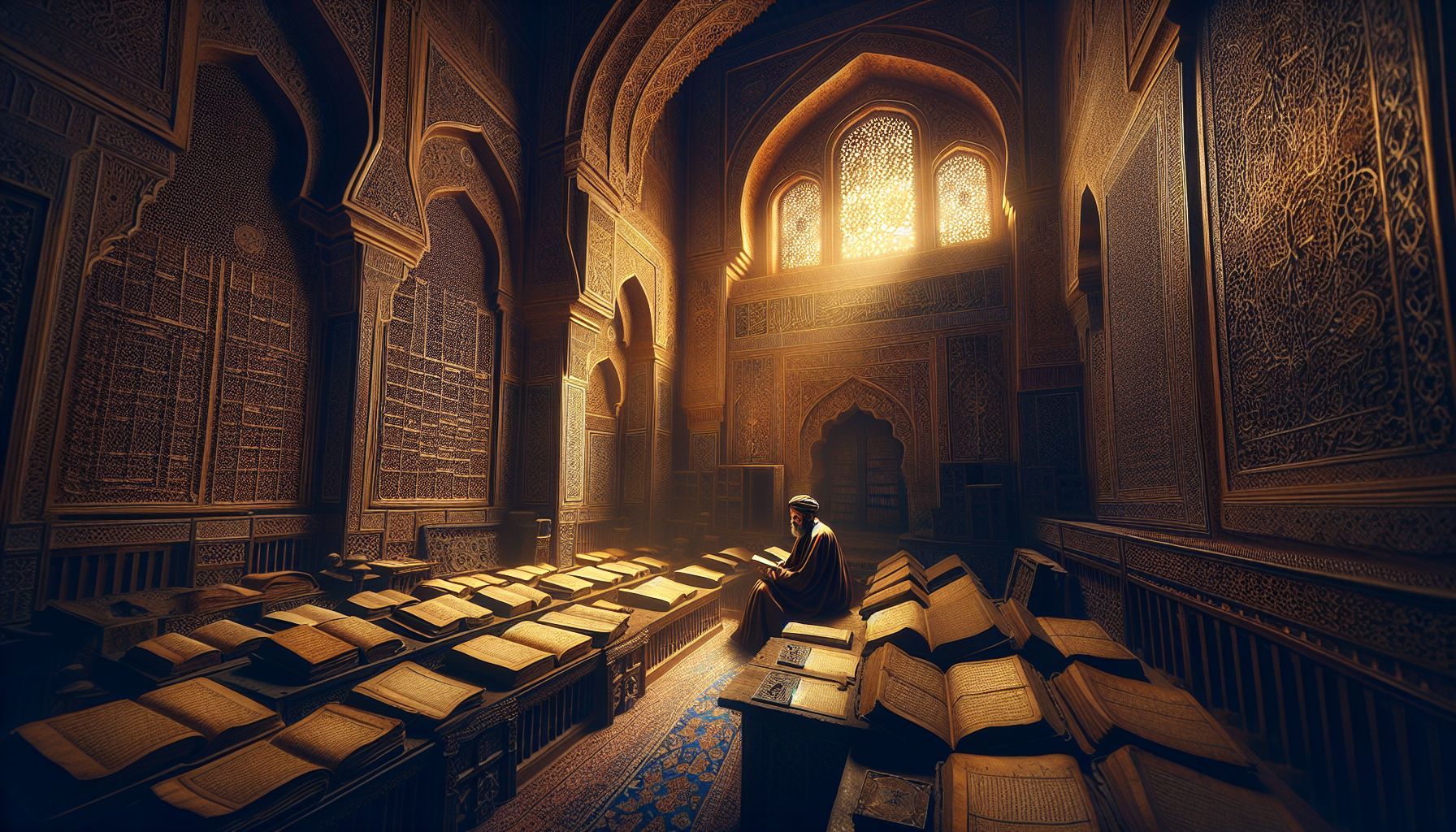
By bas meijers
•
February 13, 2025
The Intellectual and Spiritual Value of Books The pursuit of knowledge (ilm) is an integral part of Islamic tradition. The first revelation to Prophet Muhammad (peace be upon him) was the command: “Read! In the name of your Lord who created” (Qur’an 96:1). The written word holds immense power, it carries the teachings of the Prophet (peace be upon him), the insights of scholars, and the reflections of those who have walked the path of righteousness before us. Unlike the transient nature of online articles or social media posts, real books offer permanence, depth, and authenticity. The process of reading from a physical book invites contemplation and focus, fostering a profound connection between the reader and the text. My tips for essential Titles for a Personal Islamic Library Building a personal Islamic library is not about accumulating books for the sake of ownership but about having access to sources of knowledge that nurture faith and practice. Below are some essential categories and recommended works: 1. The Qur’an and Its Sciences Tafsir Ibn Kathir – A fundamental exegesis of the Qur’an. Tafheem al-Qur’an by Syed Abul A’la Maududi – A detailed commentary offering linguistic and thematic insights. The Noble Qur’an: Word-for-Word Translation – Essential for those learning Arabic and seeking deeper understanding. Tajweed Qur’an – A must-have for mastering the proper recitation of the Qur’an. 2. Hadith Collections Sahih al-Bukhari – The most authentic collection of Prophetic traditions. Sahih Muslim – Complementary to Bukhari, equally authoritative. Riyadh as-Salihin by Imam An-Nawawi – A collection of hadith emphasizing ethics and spirituality. 3. Classical Islamic Works Ihya Ulum al-Din by Imam Al-Ghazali – A masterpiece on spiritual purification and Islamic ethics. Al-Shifa by Qadi Iyad – A detailed work on the status and character of the Prophet (peace be upon him). Fiqh as-Sunnah by Sayyid Sabiq – A guide to Islamic jurisprudence. 4. History and Seerah (Biography of the Prophet) Ar-Raheeq Al-Makhtum (The Sealed Nectar) by Safi-ur-Rahman al-Mubarakpuri – A well-researched biography of the Prophet. Muhammad: His Life Based on the Earliest Sources by Martin Lings – A beautifully written account of the Prophet’s life. 5. Spirituality and Self-Purification Purification of the Heart by Hamza Yusuf – A modern work on spiritual diseases and their cures. Al-Adab al-Mufrad by Imam Bukhari – A collection of hadith focusing on manners and character. The Timelessness of Real Books in a Digital World In today’s fast-paced world, where knowledge is often diluted by misinformation and fleeting distractions, owning a collection of real books serves as an anchor. Unlike online resources, books demand patience, deep thinking, and sincerity in seeking knowledge. As Imam Ash-Shafi’i said, “Knowledge is not what is memorized but what benefits.” Your personal Islamic library is more than a collection—it is a testament to your journey in faith, a means of passing knowledge to future generations, and a source of continuous spiritual nourishment. Investing in books is investing in a legacy of wisdom that will outlive the transient nature of the digital age. May your pursuit of knowledge bring you closer to Allah, and may your library be a sanctuary of enlightenment and guidance. As the Prophet (peace be upon him) said, “When Allah wishes good for someone, He grants him understanding of the religion.” (Bukhari & Muslim).
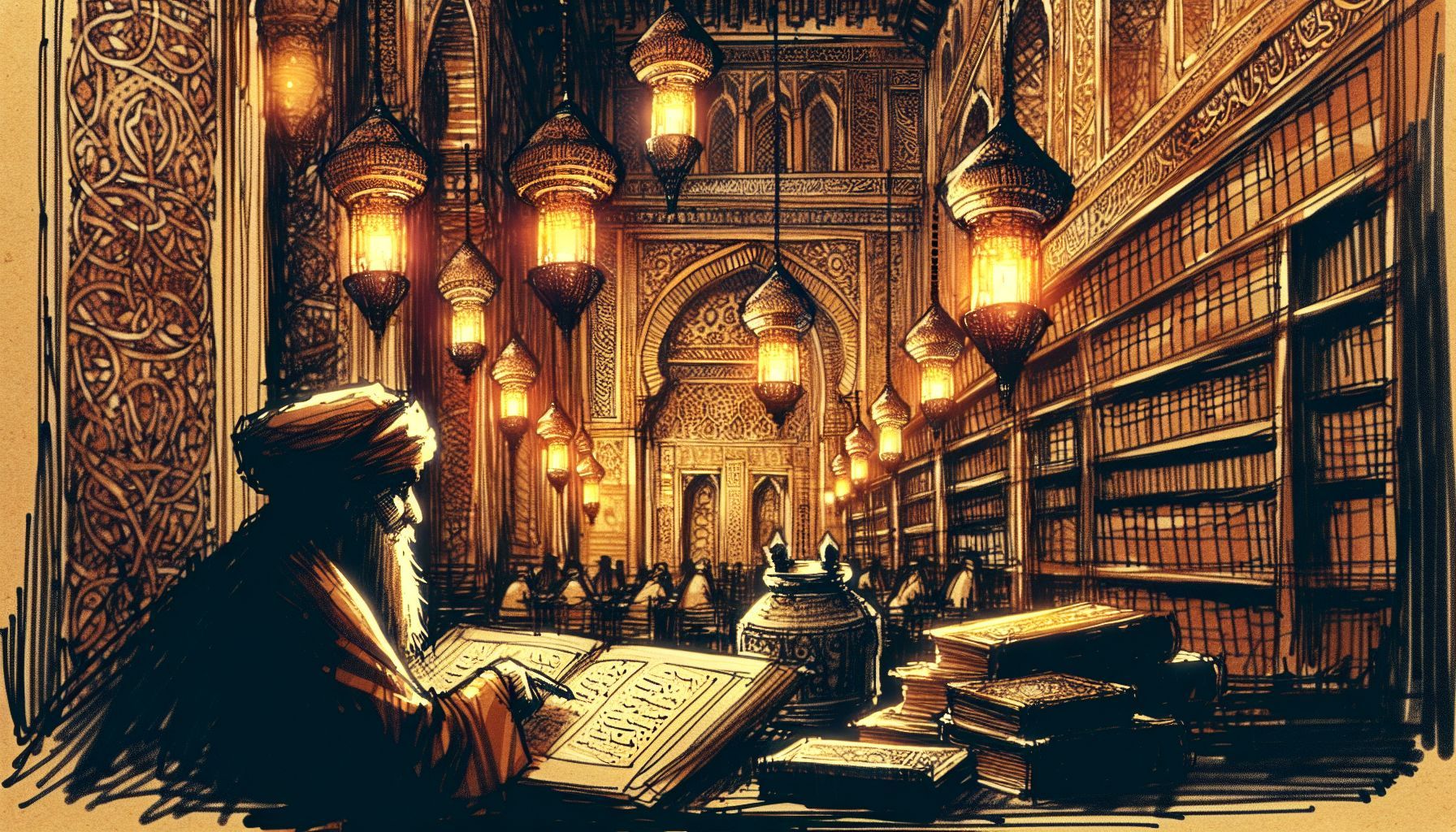
February 13, 2025
The Compiler: Imam Muhammad ibn Isma'il al-Bukhari Imam al-Bukhari was born in 810 CE in Bukhara, a city in present-day Uzbekistan. From a young age, he displayed an extraordinary memory and a deep passion for Islamic sciences. By the age of sixteen, he had already memorized a vast number of hadith and set out on a lifelong journey to collect and authenticate the sayings and traditions of the Prophet Muhammad (peace be upon him). He traveled extensively across the Muslim world, from Makkah and Madinah to Baghdad, Kufa, and Egypt, seeking knowledge from the greatest scholars of his time. With a meticulous approach to hadith authentication, he became known for his stringent criteria in verifying the authenticity of narrations. The Meaning and Importance of Sahih al-Bukhari Sahih al-Bukhari is considered the most authentic book after the Qur'an. Imam al-Bukhari compiled over 600,000 hadith but selected only about 7,500 (including repetitions) that met his rigorous standards. His method involved scrutinizing the chain of narrators (isnad) to ensure that every individual in the chain was trustworthy and had direct contact with the person they were narrating from. The collection covers all aspects of Islamic life, including faith, jurisprudence, ethics, and spirituality. Its significance is highlighted by the fact that scholars unanimously regard it as the most reliable hadith compilation, alongside Sahih Muslim. As Imam al-Nawawi stated, “The scholars have agreed that the most authentic book after the Book of Allah is Sahih al-Bukhari and then Sahih Muslim.” The Lasting Impact of Sahih al-Bukhari The influence of Sahih al-Bukhari extends beyond academic circles. It serves as a crucial source for Islamic rulings, spiritual guidance, and historical knowledge. Many scholars throughout history have dedicated their lives to explaining and commenting on its narrations, such as Ibn Hajar al-Asqalani’s famous work Fath al-Bari. The importance of hadith in Islam cannot be overstated. The Qur'an commands Muslims to follow the example of the Prophet (peace be upon him), and hadith provide the detailed context and explanations needed to practice Islam correctly. As the Prophet himself said, “May Allah brighten the face of the one who hears a hadith from us, memorizes it, and conveys it to others.” (Tirmidhi) A Journey of Knowledge By owning Sahih al-Bukhari, I did not just acquire a book, I embraced a legacy of knowledge passed down through generations. The more i will engage with its teachings, the closer i will become to understand the words and actions of the Prophet Muhammad (peace be upon him). This is not just a reading endeavor; it is a spiritual journey. May everybody's study of Sahih al-Bukhari bring us closer to the wisdom of Islam, and may Allah bless our efforts in seeking knowledge. As the Prophet (peace be upon him) said ; “When Allah wishes good for someone, He grants him understanding of the religion.” (Bukhari & Muslim)

By bas meijers
•
February 13, 2025
The First Lessons: A Humbling Experience I had my first two lessons with my teacher, Sanaa, this past week, and let me tell you—Arabic is no joke! The alphabet alone is a universe of its own. Unlike English, where letters stand independently, Arabic letters change shape depending on their position in a word. Then there are sounds that simply don’t exist in English. The letter ‘ع’ (Ayn)? My throat was not ready for that challenge! And don’t even get me started on grammar. In English, we say “the book” whether it belongs to a man or a woman. In Arabic, it changes. The structure feels so different, yet I can already sense the elegance behind it. As Sanaa reassured me, “Every language has its own logic, and once you begin to think in Arabic, it will make perfect sense.” I’m holding onto that hope! Why Learn Arabic? More Than Just a Language As a new Muslim, I know that learning Arabic isn’t just an intellectual pursuit—it’s a spiritual one. The Qur’an was revealed in Arabic, and while translations help, they can never fully capture the richness of the original text. Imam Al-Shafi’i once said, “It is obligatory upon every Muslim to learn from the Arabic language what allows him to perform his obligations.” Even if fluency takes years, each step brings me closer to understanding the words I recite in prayer every day. The deeper I go, the more I realize that Arabic isn’t just about communication—it’s about connection. Connection to Allah, to the ummah, and to the vast ocean of Islamic knowledge that has been preserved in this language for centuries. As Sheikh Ibn Taymiyyah put it, “The Arabic language is part of the religion, and knowing it is an obligation.” It’s humbling to think that by learning Arabic, I’m not just picking up a skill—I’m embracing a legacy. The Beauty Behind the Struggle Yes, it’s tough. My brain is still wrestling with new sounds and unfamiliar script, but every small victory—recognizing a letter, forming a word, understanding a simple sentence—feels like unlocking a door to something profound. And the beauty of this journey is that I’m not alone. Many new Muslims have walked this path before, and many will follow. We struggle together, but we grow together too. So here’s to the journey ahead, with all its challenges and triumphs. As Sanaa reminds me, “Even the Prophet Muhammad (peace be upon him) told us that the best deeds are those done consistently, even if small.” One letter at a time, one word at a time—I’ll get there, in sha’ Allah.

By bas meijers
•
January 23, 2025
The History of the Sarik: An Islamic Headpiece for Men While purchasing precious tasbih beads online, I came across a beautifully crafted sarik for sale. Intrigued, I ordered it, and as I held it in my hands, I found myself captivated by its elegance and the rich tradition it represented. This fascination led me to delve deeper into its history and significance, inspiring me to write this article. The sarik, a traditional headpiece worn by Muslim men, has a rich history that stretches from the early days of Islam to the modern era. This headgear is more than just a piece of cloth; it symbolizes dignity, spirituality, and identity within Islamic culture. In this blog post, we explore the origins, religious significance, and contemporary role of the sarik. The Origins of the Sarik The sarik, also known as the turban, has roots that date back to pre-Islamic times. In pre-Islamic Arabian societies, the turban was worn as a practical garment that provided protection against the scorching sun and desert sand. When Islam began to spread in the 7th century, the sarik assumed a deeper spiritual and symbolic significance. According to narrations from the Sunnah, the Prophet Muhammad (peace be upon him) himself wore a turban. In a hadith narrated by Ibn Umar, it is mentioned: “The Messenger of Allah wore a black turban on the day of the conquest of Mecca” (Sahih Muslim). The sarik became a symbol of dignity and a marker of the Islamic community. The Sarik in the Quran and Sunnah While the Quran does not explicitly mention the sarik, it emphasizes modesty and following the traditions of the Prophet. In Surah Al-Ahzab (33:21), it is stated: “Indeed, in the Messenger of Allah, you have an excellent example for whoever has hope in Allah and the Last Day.” Wearing the sarik is seen as a way to emulate the lifestyle and practices of the Prophet. Additionally, various hadiths highlight the importance of head coverings, especially during prayer. The turban was traditionally worn by scholars, imams, and other prominent figures in Islamic society, contributing to the status and respect associated with it. The Evolution of the Sarik Through History Over the centuries, the sarik has taken on different forms and styles depending on the region and cultural influences. In the Ottoman Empire, for instance, the turban became a status symbol and distinguished social classes and religious scholars. In South Asian countries such as India and Pakistan, the turban is an integral part of traditional attire and is often worn during Islamic ceremonies. In some regions, such as North Africa, the turban is still worn daily, while in other areas, the practice has become more ceremonial. Despite these differences, the sarik remains a powerful symbol of Islamic identity and spirituality. Contemporary Use of the Sarik Today, the sarik is worn in both religious and cultural contexts. For many Muslims, it is a way to express their connection to Islam and its history. During special occasions such as weddings, Eid, and religious gatherings, men often wear beautiful turbans that reflect their dedication to tradition and faith. Moreover, Islamic scholars and leaders worldwide have continued to wear the sarik as a sign of their authority and spiritual leadership. In some mosques, it is still customary for the imam to wear a turban while leading prayers, a practice that reflects the continuity of Islamic traditions. The Symbolism of the Sarik The sarik represents more than just a fashion item; it is a symbol of modesty, honor, and devotion to Allah. For many Muslims, wearing a turban is a way to keep the spiritual heritage of Islam alive and affirm their identity in an ever-changing world. Conclusion The sarik has a long and rich history that is deeply intertwined with Islamic culture and tradition. From its origins in pre-Islamic times to its prominent role in Islamic history and contemporary use, the sarik remains a powerful symbol of faith, dignity, and connection. It serves as a reminder of the timeless values of Islam and the deep spiritual roots of its followers. By wearing the sarik, Muslims around the world not only remain faithful to their religious traditions but also contribute to the preservation of a cultural heritage that transcends generations.

By bas meijers
•
January 9, 2025
The Ancient Origins of Bakhoor: A Scent that Transcends Time Bakhoor, a traditional incense used in many parts of the Arab world, has a rich history that dates back to ancient civilizations. The word "bakhoor" is derived from the Arabic term for incense, and its use has been documented for over 5,000 years in regions such as the Arabian Peninsula, Mesopotamia, and Persia. Ancient cultures, including the Egyptians, Persians, and later the Arabs, were known to burn bakhoor to ward off evil spirits, purify their homes, and create a peaceful atmosphere. The aromatic smoke was also believed to have spiritual and healing powers. Throughout Islamic history, burning bakhoor became an integral part of religious and cultural practices. From welcoming guests to celebrating joyous occasions like weddings, bakhoor has remained a symbol of hospitality, cleanliness, and spiritual purity. Its distinctive scent is not only a source of physical pleasure but also helps to cultivate a deep, meditative state, making it a cherished part of daily life in many Muslim households today. The Magic of Oud: A Luxurious Fragrance of the East Oud, known as “the wood of the gods,” is one of the most precious and sought-after scents in the world. It comes from the resin of the agarwood tree, which grows predominantly in Southeast Asia. When the tree becomes infected with a specific mold, it produces a dark, fragrant resin known as oud. The process of harvesting and distilling oud is labor-intensive, which is why it is one of the most expensive perfumes on the market. For centuries, it has been prized in Arab and Islamic cultures for its deep, musky, and earthy aroma. In Islamic tradition, oud is highly revered, as it was used by the Prophet Muhammad (PBUH) and his companions. The scent of oud is considered purifying and spiritually elevating, often burned during prayers, gatherings, and other sacred moments. Oud’s significance goes beyond its fragrance; it symbolizes purity, luxury, and devotion, making it a beloved element in the Islamic world. The Art of Making and Burning bakhoor Creating bakhoor is a highly skilled craft that involves blending natural ingredients like agarwood, frankincense, sandalwood, and a variety of herbs, spices, and essential oils. The wood is finely ground and then mixed with other materials to form small, fragrant blocks or chips, which are later burned on a charcoal or incense holder. The process of making bakhoor is both an art and a science, requiring an intimate understanding of how different elements interact to create a balanced and captivating aroma. Bakhoor is traditionally burned during significant events or daily rituals. The burning process itself is a deeply meditative experience. As the smoke rises, it is believed to purify the air, bring tranquility, and even invite blessings into the home. This practice aligns with the Islamic tradition of maintaining cleanliness and purity, both physically and spiritually. The aromatic clouds of bakhoor, along with the accompanying prayers, provide an atmosphere conducive to reflection and connection with the divine. The Unique Fragrance of Adeni Bakhoor: A Yemeni Treasure Adeni bakhoor is a particular style of incense originating from Yemen, known for its distinctive aroma and high quality. The heart of Adeni bakhoor lies in its use of rare, high-grade agarwood, blended with other native Yemeni herbs and spices. The result is a rich, sweet, and complex scent that is both calming and uplifting. Adeni bakhoor is often considered one of the finest types of incense, and it has become a symbol of Yemeni craftsmanship. What sets Adeni bakhoor apart is not just its ingredients but the traditional methods used in its preparation. The production process is carefully guarded, with artisans passing down their knowledge from generation to generation. The result is a product that carries the essence of Yemeni heritage. Whether used in personal rituals or shared with loved ones during special occasions, Adeni bakhoor holds a special place in the hearts of many across the Arab world and beyond. The Allure of Yemeni Oud: A Fragrance of Distinction Yemeni oud is a treasure within the oud family, distinguished by its unique, complex scent profile. Unlike other oud varieties, Yemeni oud is known for its bold and intense fragrance, which is often described as spicy, woody, and slightly sweet. The scent lingers longer than most other types of oud, and it carries a richness that is unmatched. The careful harvesting techniques and regional conditions in Yemen contribute to the exceptional quality of this oud, making it one of the most highly regarded in the world In the Islamic world, Yemeni oud is considered a symbol of luxury, sophistication, and spiritual purity. It is frequently burned during prayers and other sacred moments, as it is believed to purify the soul and enhance the connection with the divine. Its deep, earthy fragrance creates an atmosphere of peace and reverence, which makes it especially suitable for moments of reflection and worship. The Role of Bakhoor and Oud in Islamic Rituals and Daily Life In Islam, cleanliness and purity are essential elements of both physical and spiritual life. Bakhoor and oud play a central role in maintaining this sense of purity. From the preparation for prayers (salah) to the scent of the mosque, both fragrances are deeply embedded in Islamic tradition. Burning bakhoor is seen as a means of purifying the environment, both for personal use and for welcoming guests into one’s home. It is a reminder of the importance of purity in all aspects of life. Moreover, these scents serve as a connection to the past and the traditions of the Prophet Muhammad (PBUH). The use of bakhoor and oud, whether in small daily rituals or during special celebrations like weddings or Eid, is not only about the fragrance but also about the intention behind it. These practices create an atmosphere of peace, mindfulness, and devotion, helping Muslims connect more deeply with their faith and community.

By bas meijers
•
January 4, 2025
🌟 The Unseen Burden: How Childhood Trauma Shadows Our Spiritual Journey 🌟
Childhood trauma can feel like an invisible weight, holding us back from embracing peace and spiritual growth. In this heartfelt post, I share my journey of healing, faith, and finding the strength to reconnect with Allah.
From Quranic verses that comfort the soul to the unexpected motivational boost of Sharon Jones' "Get Up and Get Out" or dancing to "Everybody Needs Somebody" from The Blues Brothers, this post explores how the right inspiration—divine or earthly—can help us take the first step toward healing.
Whether you're navigating trauma or simply looking for motivation to rise above life’s challenges, this is a reminder that Allah is always guiding us toward the light. 🌙✨
#HealingThroughFaith #IslamicInspiration #TraumaRecovery #FaithAndHealing #SpiritualJourney

By bas meijers
•
January 2, 2025
True Change Begins with You, Not the Calendar
This post challenges the idea that transformation needs to wait for the new year. Drawing on the wisdom of Islamic scholars like Imam Al-Ghazali and Ibn Qayyim al-Jawziyya, it reminds us that real change is about continuous self-improvement and taking action today, not at some designated time. Learn how Islam teaches us to embrace the power of now for a more meaningful and lasting transformation.
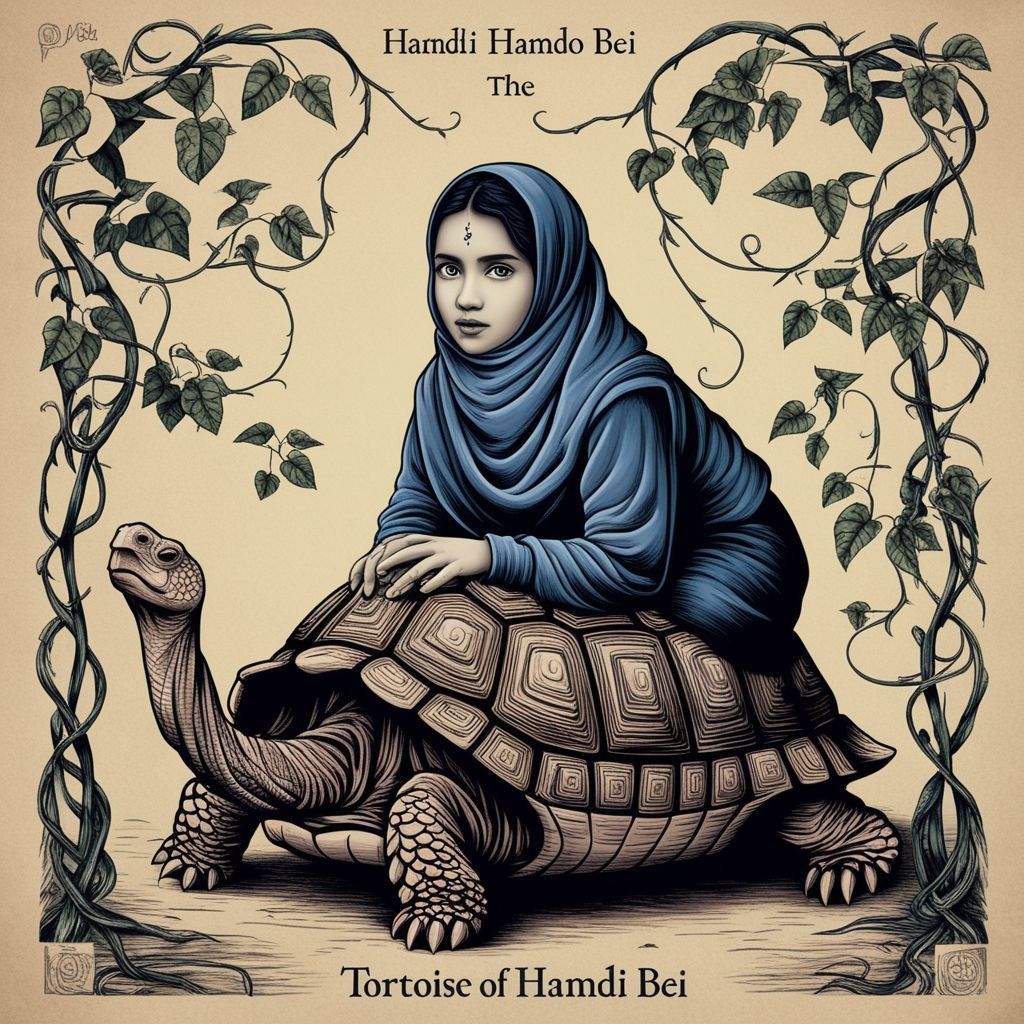
By bas meijers
•
January 1, 2025
Discover the timeless wisdom of Osman Hamdi Bey’s masterpiece, 'The Tortoise Trainer.' This thought-provoking painting explores themes of patience, progress, and spiritual growth, showing how art can open minds and hearts to deeper understanding. Join us as we delve into its symbolism and the profound impact it can have on personal and societal transformation.
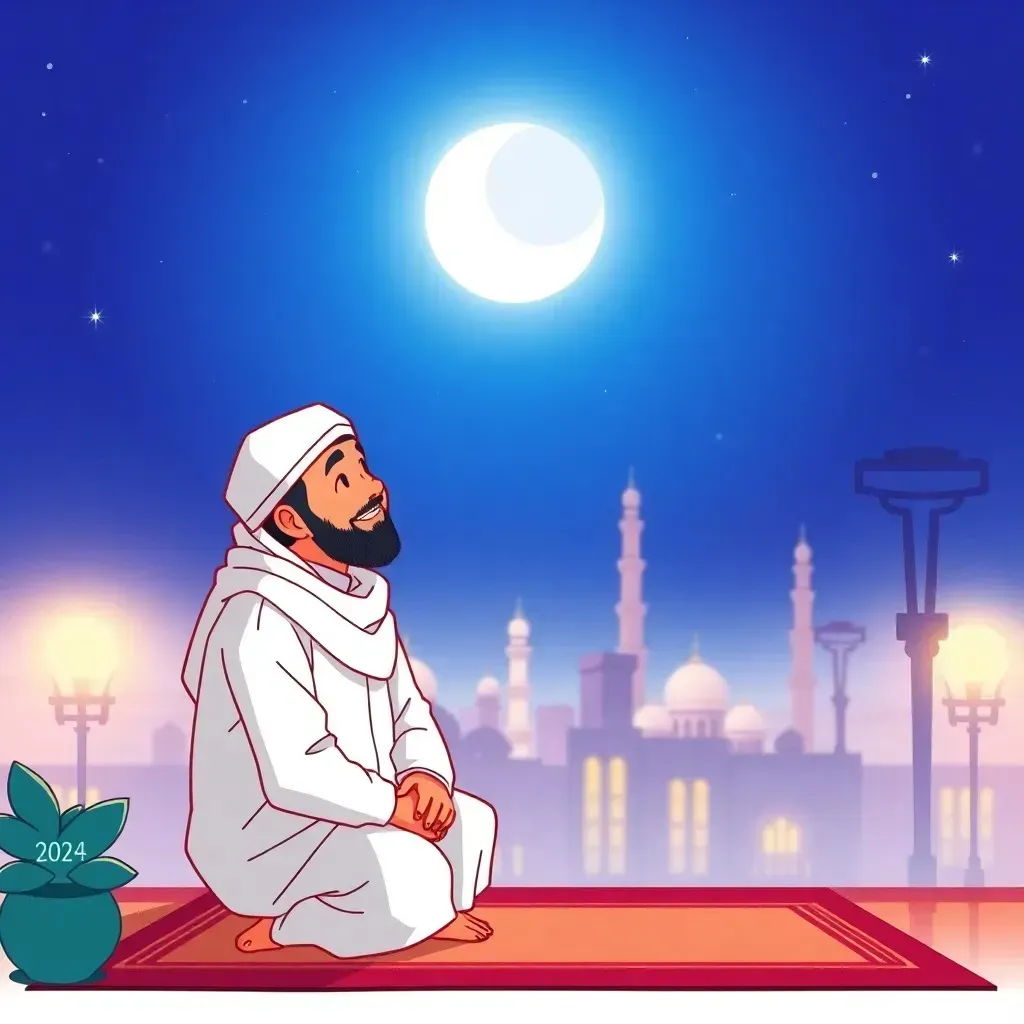
By bas meijers
•
December 30, 2024
The Role of Connection and Guidance It was during a breakfast in a bustling hotel in Istanbul that I met Brother Arif and his wife, Sabiha. Our tables were set next to each other because of the crowd, and what started as a casual conversation quickly became one of the most memorable exchanges of my life. At the time, I was still new to Islam, feeling the weight of many questions. I was unsure about so many things, especially about how to balance my new faith with the realities of life. Arif, an experienced Muslim, spoke with warmth and clarity. We chatted about faith a bit, the Blue Mosque, and whether we’d visited other great mosques in Istanbul. His advice felt personal and sincere. He shared his phone number in case I had any questions. And I did have quite a few, lol. Sabiha, listening by his side, added a gentle reminder of the significance of community and connection. She emphasized that even in a foreign place or a non-Muslim environment, the bonds we share as Muslims are powerful enough to help us thrive. Their words reminded me that Islam is not just about individual faith but about the unity we share as part of the global Muslim family. Or was that Arif? It was, anyhow, a marvelous first fellow brother and sister encounter. One other incredible connection I made during this time was with Zainab, a vibrant young woman from Tanzania. Zainab is a talented journalist and fashionista, known for her natural beauty, which is matched only by her sharp intellect and profound faith. We became deep friends, and our conversations about life, faith, and the intersections of fashion and Islam were enlightening. She reminded me that our unique perspectives as Muslims in different corners of the world only strengthen the bond we share, no matter where we are. Through Zainab’s friendship, I learned that faith can be woven into every aspect of life—whether in the media, fashion, or in our daily interactions. The Importance of Fellowship in Faith: From this encounter, I learned that fellowship in Islam transcends distance. While I may not be surrounded by a large Muslim community in the Netherlands, the connection I felt with Arif, Sabiha, and Zainab was proof that Islam’s fellowship is global and constant. Whether in a hotel breakfast room in Istanbul or through online conversations with others, I realized that as Muslims, we are always connected through our shared love for Allah and our commitment to the teachings of Prophet Muhammad (peace be upon him). Their kindness and guidance reinforced the idea that, no matter where we are in the world, we can find support, encouragement, and wisdom from fellow Muslims. Even small interactions can leave lasting impacts, reminding us that Islam is not just about rituals—it’s about connection, support, and shared growth in faith. I also had the privilege of connecting with two sisters who work at the Information Center in the Blue Mosque (Sultan Ahmet), who provided valuable insight that helped me navigate my journey as a newly reverted Muslim. Their sophistication and well-educated minds, combined with their deep understanding of Islam, allowed them to offer guidance that was not only intellectually stimulating but also practical. Their advice was balanced and wise, helping me set healthy boundaries for my faith as I embarked on this transformative path. What’s even more beautiful is that their wisdom was reachable, thanks to the resources available at the information center, bridging the distance between me in the Netherlands and them in Istanbul. Practical Advice for New Reverts: For those embarking on the journey of embracing Islam, particularly in non-Muslim societies, here are a few pieces of advice that have helped me along the way: - Seek Knowledge: Always strive to learn more about your faith. Knowledge is the foundation of a strong relationship with Allah. Take your time, be patient, and don’t hesitate to ask questions. - Stay Connected to the Community:Whether it’s through local mosques, social media groups, or even brief encounters with fellow Muslims, maintaining connections is vital. We are all part of a global Ummah, and these bonds are a source of strength. - Be Consistent in Worship: No matter how small, consistency in prayer and other acts of worship helps build a strong foundation. Don’t be discouraged by the occasional struggle—it’s the effort that matters most. - Embrace the Journey: Remember that this journey is personal, and everyone faces their own challenges. Be patient with yourself, trust in Allah’s plan, and know that you are always supported by your brothers and sisters in faith. Conclusion: Reflecting on my experiences, I am filled with gratitude for the connections that have shaped my journey as a new Muslim. The encounter with Brother Arif and Sabiha in Istanbul was a reminder that, even in unexpected moments, we can find support and guidance that help us move forward in faith. The kindness and wisdom they shared reinforced the idea that Islam’s fellowship is boundless, transcending time and distance. Additionally, the support from the knowledgeable sisters at the Information Center of the Blue Mosque has provided me with guidance that has helped me stay grounded in my faith. Their wisdom and approachable nature reminded me of the importance of always seeking knowledge and setting boundaries in our practice. And of course, I am deeply thankful for Zainab’s friendship and the profound lessons I learned from her. She showed me that faith and friendship can be intertwined in the most beautiful ways, no matter where we come from or what we do in life. To my fellow reverts, wherever you are in the world, never forget that you are part of something much larger than yourself. Seek knowledge, stay connected, and trust in Allah’s guidance as you continue to walk your path. We are all part of this beautiful Ummah, and together, we support one another in our journey toward Him. Happy New Year!!

By bas meijers
•
December 28, 2024
A heartfelt journey through faith, illness, and resilience. Living with HOCM, I reflect on challenges, rediscovering trust in Allah, and finding inspiration in Istanbul. A story of hope, embracing Islam, and learning to live authentically amidst life’s unpredictability.
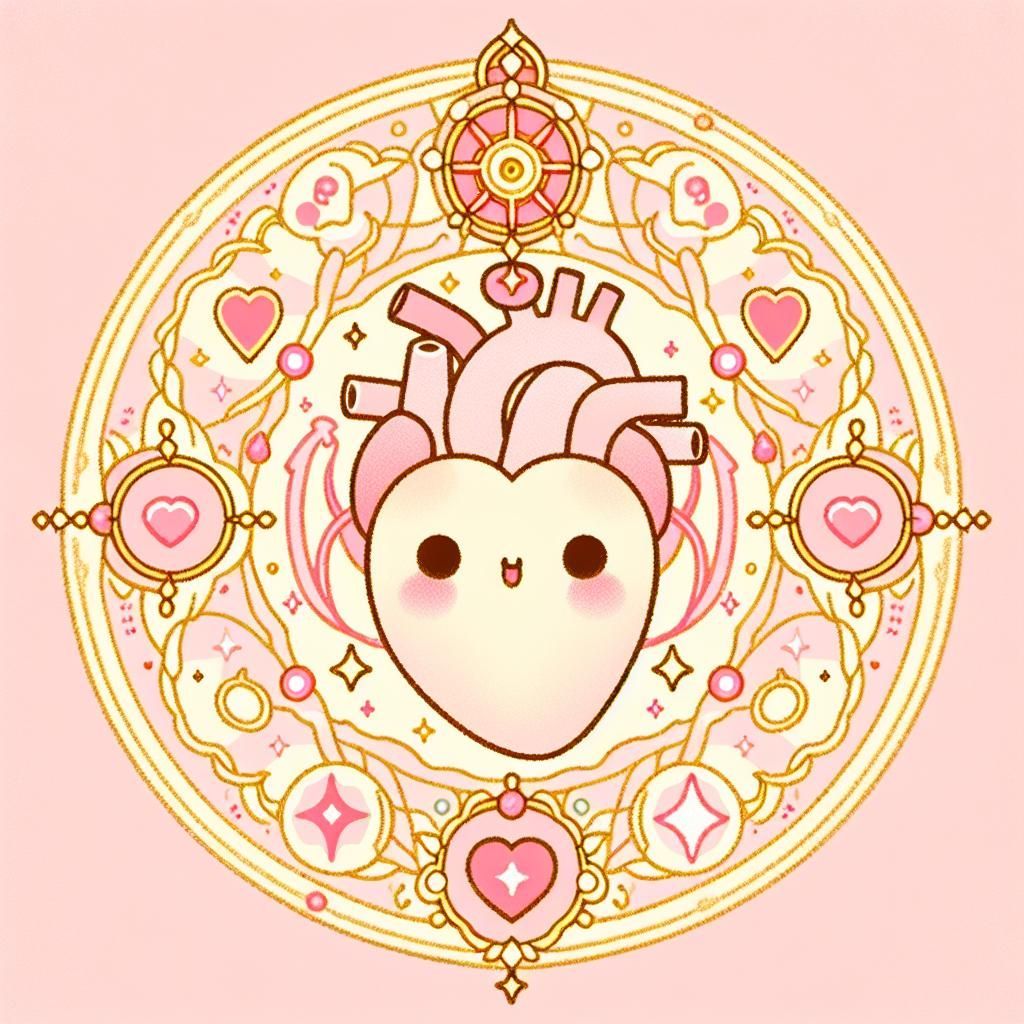
By bas meijers
•
December 5, 2024
The Importance of the Human Heart in the Quran In Islamic theology, the heart is considered not just the physical organ that pumps blood, but a symbol of the spiritual and emotional core of human existence. The Quran, as the divine guide for humanity, frequently emphasizes the heart as the seat of understanding, consciousness, and faith. It is through the heart that a person connects to Allah (God) and develops the spiritual qualities that define their relationship with the Creator. The Heart as the Seat of Faith and Understanding The Quran places great emphasis on the heart as the center of intellect and faith. The ability to understand Allah’s signs and to appreciate His wisdom is closely tied to the state of the heart. Allah says in Surah Al-Hajj (22:46): "Have they not traveled through the land, and have hearts by which to understand and ears by which to hear? For indeed, it is not the eyes that are blind, but the hearts which are within the breasts." (Quran 22:46) This verse underlines that true blindness is not physical but spiritual. A heart that is attuned to Allah’s guidance will have insight beyond mere physical sight. The heart is the instrument through which a person perceives and comprehends the deeper realities of life, including the unseen world, the truths of the Quran, and the profound wisdom of Allah. The Heart's Role in Accepting Guidance The Quran repeatedly mentions that the heart is where faith resides, and it is through the purification and openness of the heart that one can receive divine guidance. In Surah Al-Baqarah (2:10), Allah warns against the hardened heart, which becomes impervious to the divine message: "In their hearts is disease, so Allah has increased their disease, and for them is a painful punishment because they used to lie." (Quran 2:10) A heart that is filled with doubt, arrogance, or corruption becomes resistant to guidance. This verse serves as a reminder that for one to truly accept the guidance of Allah, the heart must remain soft, open, and humble. The Prophet Muhammad (peace be upon him) said: "Indeed, in the body, there is a piece of flesh which, when it becomes good (reformed), the whole body becomes good; and when it becomes corrupt, the whole body becomes corrupt. That piece of flesh is the heart." (Sahih al-Bukhari) This hadith indicates the pivotal role the heart plays in a person’s spiritual health. Just as the body depends on the heart for life, the soul depends on the purity of the heart for spiritual vitality. The Heart's Connection to Taqwa (God-Consciousness) Taqwa, or God-consciousness, is a central concept in Islam. It refers to a state of constant awareness of Allah, which influences every aspect of a person's life. Taqwa is a product of a purified and sincere heart. Allah says in Surah Al-Hujurat (49:3): "Indeed, the most noble of you in the sight of Allah is the most righteous of you. Indeed, Allah is Knowing and Acquainted." (Quran 49:13) In this verse, the concept of righteousness (taqwa) is linked directly to the heart. The nobility of a person is not determined by wealth, status, or lineage, but by the purity and sincerity of their heart, which reflects their devotion to Allah. This purity is cultivated through regular remembrance (dhikr) of Allah, prayer (salah), and an active commitment to spiritual growth. The Heart and Its Need for Purification The heart is prone to ailments that can distort one’s perspective and behavior. These "diseases" of the heart include arrogance (kibr), envy (hasad), hatred (bughd), and greed (hirs). The Quran highlights the importance of purifying the heart, as seen in Surah Ash-Shams (91:9-10): "He has succeeded who purifies it, and he has failed who instills it with corruption." (Quran 91:9-10) The process of purifying the heart is essential for spiritual growth. A heart that is cleansed from these negative traits can develop qualities such as humility, compassion, gratitude, and sincerity. Scholars like Imam Al-Ghazali have written extensively on the subject of spiritual purification, noting that the heart must be regularly "recharged" through worship, reflection, and good deeds. The Heart’s Role in Repentance and Forgiveness The Quran also mentions the heart in the context of repentance (tawbah). When a person turns to Allah in sincere repentance, their heart must be involved in the process. In Surah At-Tahrim (66:8), Allah says: "O you who have believed, repent to Allah with sincere repentance. Perhaps your Lord will remove from you your misdeeds and admit you into gardens beneath which rivers flow..." (Quran 66:8) Sincere repentance requires the heart to feel remorse, to abandon sinful behavior, and to make a firm intention not to return to that sin. Imam Ibn al-Qayyim, a renowned Islamic scholar, explained that true repentance stems from a heart that recognizes its shortcomings and returns to Allah in humility and submission The Heart and the Day of Judgment The importance of the heart extends beyond this life. On the Day of Judgment, the state of one’s heart will be of paramount importance. In Surah Ash-Shu'ara (26:89), Allah describes the Day of Judgment as a day when wealth, children, and material possessions will be of no use, except for the one who comes to Allah with a sound heart: "The Day when neither wealth nor children will benefit, except one who comes to Allah with a sound heart." (Quran 26:88-89) A sound heart in this context is a heart free from the pollutants of pride, hatred, and sin. It is a heart that has consistently remained connected to Allah through worship and good deeds. It is the heart that has been purified and softened, ready to meet its Creator. hati Conclusion The human heart in the Quran is not merely an organ of physical life but a profound symbol of spiritual existence. It is the center of human consciousness, intellect, and faith, shaping the way individuals interact with the world and with their Creator. The Quran and the teachings of the Prophet Muhammad (peace be upon him) make it clear that the state of the heart directly influences a person’s connection to Allah, their capacity for righteous action, and their ultimate success in the Hereafter. Therefore, Muslims are urged to regularly cleanse and nourish their hearts, striving to maintain a state of purity, sincerity, and humility, so that they may be among those who receive the mercy of Allah on the Day of Judgment. By understanding the significance of the heart, both physically and spiritually, one can better appreciate the importance of nurturing and protecting this vital aspect of one’s existence. As Allah says in the Quran: "Indeed, in the remembrance of Allah do hearts find rest." (Quran 13:28) Ibrahim aka Bas Meijers
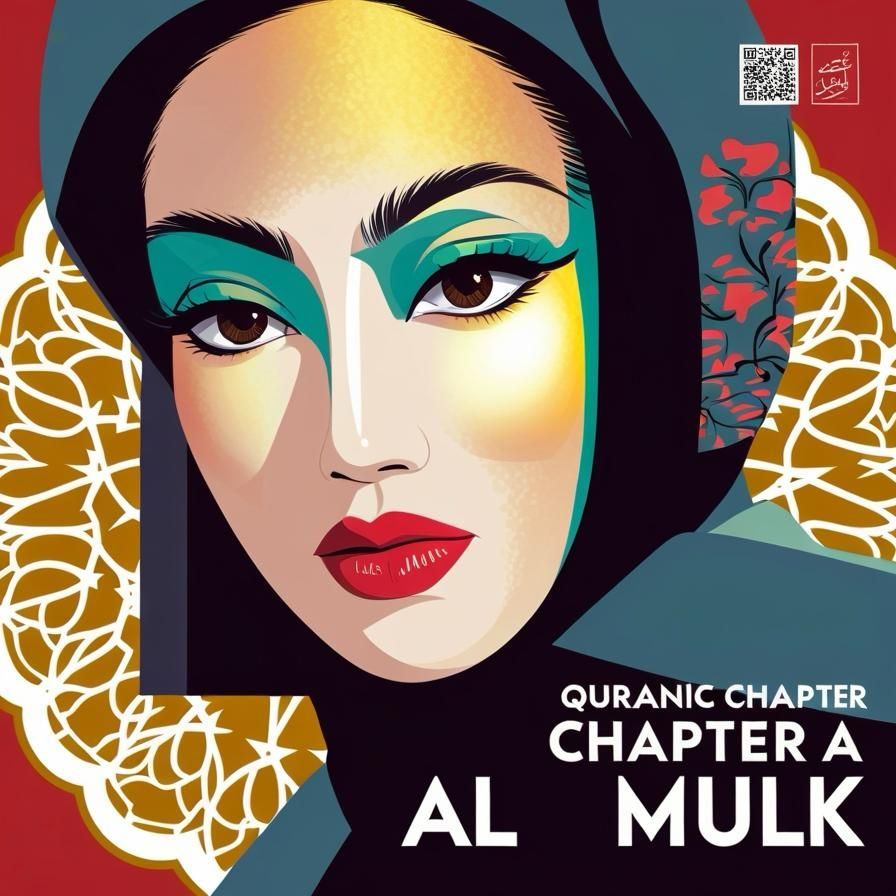
By bas meijers
•
December 5, 2024
A Detailed Exploration of Surah Al-Mulk: Unveiling Deeper Meanings and Scholarly Insights Surah Al-Mulk (The Sovereignty), the 67th chapter of the Quran, is a profound chapter with 30 verses that speak about the majesty and dominion of Allah over the heavens and the earth. It is a chapter that encourages reflection on the signs of creation, the realities of life and death, and the ultimate fate of human beings based on their actions. Surah Al-Mulk emphasizes both the greatness of Allah’s creation and the insignificance of human beings compared to His grandeur. It also offers guidance on the importance of understanding the Creator’s sovereignty, which is a key element in a believer’s relationship with Allah. The Significance of Surah Al-Mulk for New Reverts For those who have recently embraced Islam, Surah Al-Mulk holds special importance. It serves as a reminder of the omnipotence of Allah and the importance of recognizing His sovereignty over all creation. The chapter stresses the need to trust in Allah’s wisdom and control over everything, encouraging humility and gratitude for His guidance. Many new Muslims find solace in Surah Al-Mulk, as it teaches that the challenges and tests in life are part of Allah's divine plan. The chapter provides comfort, knowing that Allah's authority is absolute and that ultimately everything happens according to His will. Verse-by-Verse Exploration of Surah Al-Mulk 1. "Blessed is He in whose hand is the dominion, and He is over all things competent." This opening verse emphasizes Allah’s absolute control over the universe. His dominion is not limited to the earth but extends to everything in existence. The word "blessed" (مبارك) indicates Allah's perfection and the unlimited goodness and wisdom He embodies. Scholars like Ibn Kathir and Al-Qurtubi have commented that this verse highlights the perfection of Allah's governance and how nothing occurs except by His will. 2. "Who created death and life to test you [as to] which of you is best in deed – and He is the Exalted in Might, the Forgiving." In this verse, Allah reveals that both life and death are part of His plan. Life is a test, and death is a reminder of the temporality of the world. The test is to see who performs the best deeds, demonstrating that our actions in this world determine our fate in the Hereafter. Scholars such as Al-Tabari and Al-Razi explain that the creation of death is also a sign of Allah’s power. By creating both life and death, He has the authority over both. 3. "Who created seven heavens in layers. You do not see any in the creation of the Most Merciful any inconsistency. So return your vision to the sky, do you see any breaks?" This verse invites reflection on the perfect creation of the universe. Allah’s creation of the heavens is flawless, and there are no imperfections. This verse encourages believers to contemplate the natural world, which serves as a powerful testimony to Allah’s greatness. The scholars of tafsir, such as Ibn Kathir, emphasize that this verse calls for both faith and reflection. 4-5. "Then return your vision twice again. Your vision will return to you humbled while it is fatigued." These verses emphasize the limitations of human perception. Despite all efforts to study the universe, human vision and understanding are limited. Even the most advanced scientific tools cannot fully comprehend Allah’s creation. Ibn Kathir comments on the futility of human attempts to understand the entirety of Allah's sovereignty through mere sight. 6. "And indeed, for those who disbelieve in their Lord is the punishment of Hell, and wretched is the destination." Here, Allah warns of the consequences of disbelief. The punishment for those who reject faith in Allah is severe. Scholars like Al-Qurtubi have noted that this verse underscores the importance of recognizing Allah’s sovereignty and following the path of righteousness to avoid the severe consequences of Hell. 7-9. "When they are thrown into it, they hear from it a boiling sound as it boils up, almost bursting with rage. Every time a group is thrown into it, its keepers ask them, 'Did no warner come to you?'” These verses describe the terrifying reality of Hell for those who reject the faith. The description of Hell's violent reaction to those who enter it serves as a warning to those who disbelieve. The keepers of Hell ask the disbelievers if they received a warning, emphasizing that they had the chance to heed the guidance of Allah but chose to ignore it. 10-11. "They will say, 'Yes, a warner had come to us, but we denied him and said, 'Allah has not revealed anything. You are not but in great error.'" The disbelievers will admit that they were warned, but their pride and arrogance led them to reject the truth. This highlights the dangers of ignoring divine guidance despite clear warnings. Scholars like Al-Tabari explain that these verses illustrate the regret of those who chose to disbelieve and the finality of their fate. 12-13. "And they will say, 'If only we had listened or used our intellect, we would not be among the companions of the Blaze.'" The disbelievers, after witnessing their fate in Hell, will express regret for their decisions in the worldly life. These verses encourage believers to use their intellect and heed divine guidance to avoid such regret. 14. "And who is it that created for you from the green tree fire, and then from it you ignite?" This verse speaks about the creation of fire from trees, a sign of Allah’s power. It serves as a reminder of Allah’s ability to turn ordinary elements into extraordinary creations. Scholars highlight that this verse exemplifies Allah’s infinite wisdom and knowledge in the natural world. 15. "And it is He who has made the night and the day in succession for whoever desires to remember or desires gratitude." The alternating nature of day and night is another sign of Allah's control over the universe. It serves both as a reminder and as an opportunity for reflection and gratitude. Scholars such as Ibn Kathir emphasize that this cycle helps the believer recognize Allah’s continuous mercy. 16-17. "And [He] has made the night and the day in succession, for whoever desires to remember or desires gratitude." This emphasizes the cyclical nature of time and the opportunities it provides for reflection. The changing of the day and night serves to remind people of Allah’s consistent mercy and the transience of the world. 18-19. "And [He] is the one who has given you your hearing, sight, and hearts; little are you grateful." In these verses, Allah points out that humans are often ungrateful despite the numerous blessings He has provided, such as hearing, sight, and intellect. These blessings should inspire gratitude, yet many humans remain heedless. 20. "And He is the one who has created for you from the earth, that which is a place of rest, and He placed for you roads therein that you might be guided." This verse reflects on the earth’s ability to provide sustenance and guidance. The earth's natural resources, such as food, water, and shelter, are signs of Allah’s mercy and sovereignty. 21. "And He who sends the winds as heralds of glad tidings, and We send the rain from the sky that We may give life thereby to a dead land..." The rain and winds are signs of Allah’s mercy and power, revitalizing the earth and sustaining life. It’s a reminder of how Allah brings life to that which was once lifeless, just as He can resurrect the dead. Conclusion Surah Al-Mulk is a powerful chapter that encourages reflection on the greatness of Allah's creation and sovereignty. It serves as a reminder of the temporary nature of life, urging believers to remain grateful and obedient to their Creator. For new reverts, Surah Al-Mulk can be a source of comfort, guiding them through the challenges of faith and life. It teaches the importance of recognizing Allah's sovereignty, understanding the purpose of life, and striving to live with humility and gratitude. Scholars like Ibn Kathir, Al-Qurtubi, and Al-Tabari have provided profound insights into the deeper meanings of these verses, reminding believers of the ultimate truth that Allah’s will is supreme and that the believer’s greatest success lies in submission to this reality. Ibrahim aka bas meijers
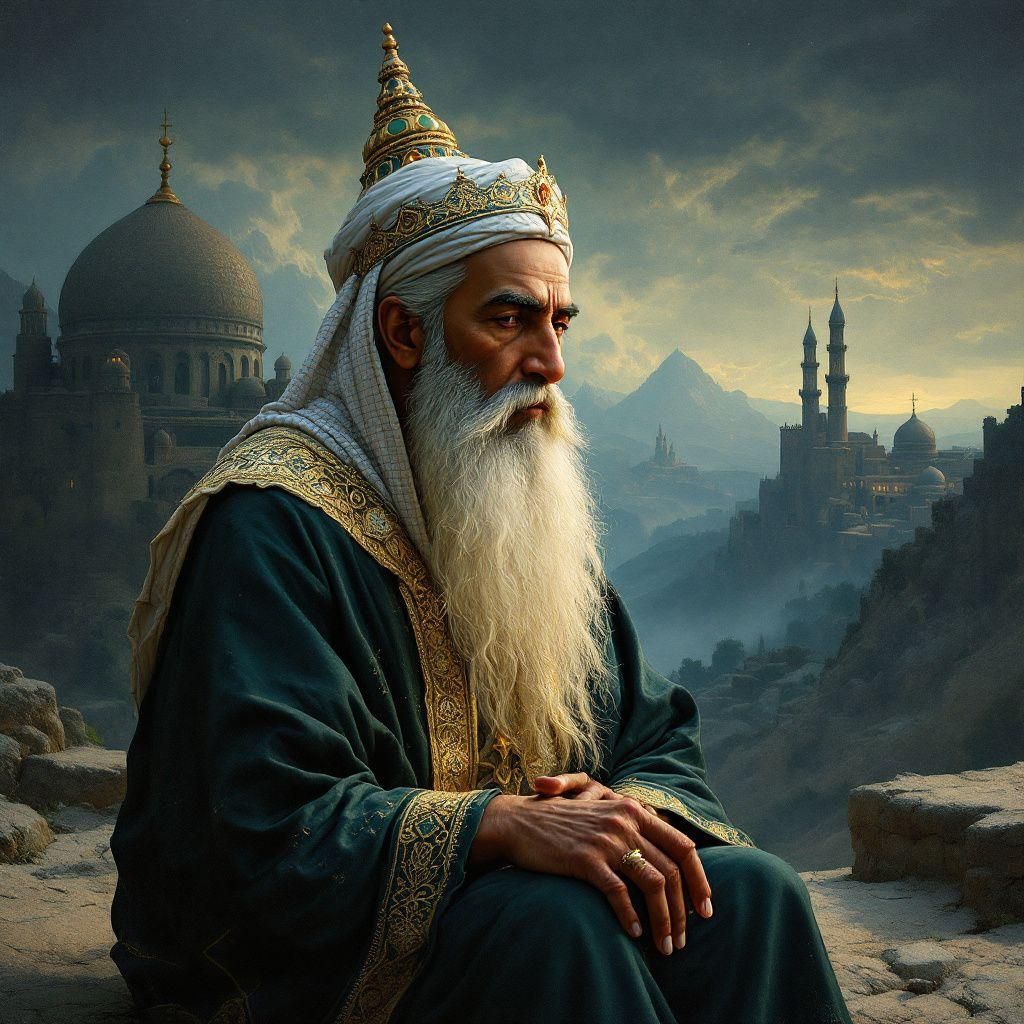
By bas meijers
•
December 5, 2024
The Mystics and Secrets of Fasting in Ramadan: A Spiritual Exploration through the Teachings of Al-Ghazali Fasting during Ramadan, a central pillar of Islam, is more than a physical act of abstaining from food and drink; it is an opportunity for spiritual transformation and enlightenment. For the mystics of Islam, particularly through the teachings of the great scholar and theologian Abu Hamid al-Ghazali, fasting is not just a discipline but a gateway to inner purity and a profound connection with the Divine. Al-Ghazali’s writings, which delve deeply into the soul’s purification, offer timeless wisdom for those who seek a deeper understanding of the secrets of fasting. The Role of Fasting in Spiritual Ascension Al-Ghazali, in his monumental work "Ihya' Ulum al-Din" (The Revival of the Religious Sciences), explores fasting as a means of achieving spiritual clarity and closeness to God. He emphasizes that the essence of fasting goes far beyond the outward act of refraining from food and drink. The true purpose is to cleanse the soul and in matter to purify the heart. In this sense, fasting becomes an exercise not only in self-discipline but also in heightened awareness of God's presence. In his book "Kitab al-Sawm" (The Book of Fasting), Al-Ghazali writes: "The essence of fasting is not merely to refrain from food and drink; rather, it is to abstain from sinful speech, harmful actions, and distractions that take us away from the remembrance of God." (Ihya' Ulum al-Din, Book of Fasting) Al-Ghazali teaches that fasting is a means to master the lower self (nafs), which is constantly drawn toward material indulgence. Through the restraint of physical desires, the believer ascends to a higher state of consciousness, one where the soul becomes attuned to spiritual truths. This practice purges the inner self of arrogance, selfishness, and heedlessness, replacing these traits with humility, gratitude, and awareness of divine mercy. The Mystical Dimensions of Fasting For the Islamic mystics, or Sufis, fasting has an even deeper, more esoteric dimension. It is not only a method of self-control but also a form of spiritual intimacy with the Divine. The Sufi understanding of fasting transcends the bodily experience and becomes a vehicle for divine love. Al-Ghazali, in his works, frequently refers to the significance of “spiritual fasting,” which involves not only abstaining from food but also from negative emotions and thoughts. A well-known Sufi saying encapsulates this deeper meaning of fasting: "Fasting is not just for the stomach, but for the eyes, the ears, the tongue, the hands, and the feet." This quote points to the Sufi concept of "fasting of the limbs"—the idea that true fasting involves the restraint of all senses from the distractions and indulgences of the material world. The Sufi mystic Rumi, one of the most revered figures in Islamic spirituality, echoes this in his poetry: "You were born with wings, why prefer to crawl through life?" The essence of Ramadan, from a mystical perspective, is to transcend the ego and awaken to the soul’s higher purpose. The act of fasting is seen as a tool that unites the seeker with the divine, purifying their heart to experience the hidden secrets of existence. It is a means of drawing closer to Allah’s "Fana" (annihilation of the self) and "Baqa" (eternal existence in God). The Secret of the Heart’s Fast Al-Ghazali highlights that fasting is also a means of purifying the heart—a central concept in Islamic mysticism. The heart, in this sense, is more than a physical organ; it is the seat of spiritual consciousness. Fasting helps remove the impurities that accumulate over time, such as pride, envy, and greed, and instead cultivates virtues such as compassion, sincerity, and love for God. He writes: "The fast of the heart is far more important than the fast of the body. The fast of the heart is abstention from all desires that lead one away from God." (Ihya' Ulum al-Din) In this context, fasting becomes an act of spiritual detoxification. Just as the body requires physical cleansing, so too does the heart require spiritual cleansing to draw closer to the Divine. For Al-Ghazali, the ultimate goal of fasting is not merely to avoid food or drink but to achieve a higher state of consciousness, where the heart is fully aligned with the will of Allah. This alignment brings forth an inner peace and clarity, which can only be found in the complete surrender to God’s presence. Fasting as a Means of Divine Love For the mystic, fasting in Ramadan is also an act of divine love. As the Qur’an states: "O you who have believed, decreed upon you is fasting as it was decreed upon those before you that you may become righteous." (Qur'an 2:183) Al-Ghazali elaborates on the connection between fasting and the purification of the soul by describing how fasting creates a space for the believer to experience God’s love more deeply. In his view, the very act of fasting draws one closer to the Divine, and fasting becomes a direct expression of devotion and love for God. "When you fast, you draw closer to Allah, who will pour His mercy upon you. The fasting person who refrains from their desires in obedience to God will be granted a place in Paradise that no one else can reach." (Ihya' Ulum al-Din) This mystical understanding of fasting as a form of divine love resonates with the teachings of many early Islamic scholars and Sufis. Ibn al-Qayyim, another great scholar, wrote: "Fasting is a love affair between the servant and the Creator; a secret shared between them." The experience of hunger and thirst during fasting allows the heart to yearn for the One who sustains and nourishes the soul, deepening the bond between the servant and the Creator. The process of enduring hardship in obedience to God mirrors the mystic’s journey toward ultimate union with the Divine. The Hidden Blessings of Ramadan Al-Ghazali also speaks of the hidden blessings and rewards of Ramadan, which are often unseen by the outward eye. He asserts that the month of Ramadan is a time when divine mercy is abundant, and the gates of heaven are open. The sincere fasting believer, even in their moments of physical discomfort, is enveloped in spiritual grace. "Ramadan is the month of purification, when the sins of the believer are forgiven, and their heart is healed. It is the month in which the soul attains true peace." (Ihya' Ulum al-Din) This idea of hidden blessings is echoed by the words of the great Islamic mystic Junayd of Baghdad, who said: "The fasting person sees things with a clarity that others do not, for their heart is free from the distractions of the worldly life." For Al-Ghazali and the Sufi tradition, Ramadan is a precious time for spiritual awakening. It is a month where the believer can unlock the secrets of fasting through introspection, prayer, and seeking closeness to God. The discipline of fasting is both a physical and spiritual purification, one that elevates the soul and leads to a deeper understanding of the Divine. Conclusion: The Eternal Secret of Fasting Through the wisdom of Al-Ghazali and the teachings of the Sufi mystics, we are reminded that the true secret of fasting is not merely in abstaining from food and drink but in surrendering the self to God. It is a journey of purification, spiritual awakening, and divine love. As Ramadan approaches, we are given a unique opportunity to experience this spiritual fast, allowing us to transform our hearts, align our wills with the Divine, and draw closer to the eternal Source of all mercy. In the words of the great mystic Al-Junayd: "The fast of the heart is to be with God, free from all distractions, free from the world." Let us, during this blessed month, embrace the true essence of fasting—not just as a ritual but as a deep spiritual practice that purifies the heart and soul, drawing us closer to our Creator. Ibrahim aka Bas Meijers

By bas meijers
•
November 30, 2024
Browsing online i bounce up to a little supporting clip about wisdom. most i used to browse philosophical sites and accounts, yet lately i ry to stick more in the area within Islam. Numerous accounts, and a whole lot of fake accounts are scrolled by. Noticing i am irritating myself a bit, a few things are popping up at the surface of my mind. At first I wonder why I give more time to scrolling socials instead of reading and studying solid physical wisdom from books. Second, why is it claimed that "the" wise most are man of little or no words whilst a lot of people of influence are shouting out their points of view and theories out loud. With this i mean that the main reason to stepped out that weird and decieving sick organ called a community or church is that It was simply no rocket science to notice and become aware that there is something not right if all their presidents/chairmans/spokesman etc come up with the fact that only their point of view will lead you into heaven. U cannot walk several paths to one destination at the same time. In this, at some moment, you will have to turn on your blind eye, in order not to be tempted to waste your time, progress and energy by being tricked into their empty discussions about who is right. It messes u up big time. And this is general advice you might try to practice in all areas off your life. The first thing u will notice in time is that there will be an increase off inner peace and a wholesome kind of being more content with yourself. at least I did after excluding certain people in my life who where convinced that their point of vieuw was the only truth and become more of a burden meeting or talking with them, cause they make u feel bad. Cause you are the person who doesnt wanna shout, be so agressive irritating venting ur point of view like they do. You dont burden other people unnecesary and they will. And they will continue doing that till the moment u turn on your blind eye to them. Its a two way working rule of wisdom that a fire will die out if you stop fuelling it. Just quit it. Mind yourself the fact that your own thoughts and opinions are getting no attention at all and on the long term they will be dangerous troubled till a point you dont know anymore wher they came from or how and whith which books or philosophies u created them. The brilliant Sir Isaac Newton stated it this way in his 3rd law-every action creates an equal and OPPOSITE reaction. A law of nature u really dont need other peoples point of view for to understand. U dont need other peoples way of interpeting this simple truth yourself. Quit that. Don't throw away your own identity and thinking by letting yourself in with people who are keen in shouting and manipulating. Mind that that law is created by your creator. Charish that fact will be bring you so much. in short - turn on your blind eye Cambridge dictionary Turn a blind eye idiom To ignore something that you know is wrong: Turn a blind eye to Management often turn a blind eye to bullying in the workplace. Thesaurus: synonyms, antonyms, and examples To intentionally not give someone or something any attention ignoreThe buzzing is irritating, but try to ignore it. disregardHe disregarded the advice of his doctor and went back to work. turn a blind eye toUntil now, the mayor has turned a blind eye to the city's homelessness problem.

By Ibrahim
•
November 20, 2024
According to faith, sometimes when I listen to a lecture, read a book, or talk with someone, I notice how often the term "test" is used. Of course, there are moments when we fail, and we hear that the Almighty is testing us. But why would Allah test us if He doesn't give us more than we can bear? In this context, the term "test" might be taken too literally. A test can have a positive or negative outcome, often judged on a scale—how badly you failed or how well you passed. But is that truly the purpose of our Creator? He who created us knows our exact capacity. So, is it really just a "test"? I don't think so. Difficulties in life are universal, part of every human experience. Yet we often frame them as failures when we struggle to handle them. In this, we might learn something from a quote often attributed to John Wooden: life isn't just about failing or passing a test. Instead, it's an opportunity to pause, reflect, and figure out how to overcome the difficulty. Think of it like a game or match. The result—whether you win or lose—is set at 50%. You might face extra time, disqualifications, or even a tie, but the question remains simple: did you win or not? Similarly, when you're "tested"—whether by losing a job, a loved one, or your health—you already know, to some extent, that the outcome could go either way. The challenge is in how you face it. Do you feel crushed, burned out, and defeated, or do you emerge stronger and more content because you've overcome it? Maybe it's not a "test" at all—something that you can fail or pass. Perhaps it's a lesson. One without winners or losers. A hint to pause when you're struggling or feeling overwhelmed. To realize that these challenges are simply a part of life. The great philosopher Epictetus once said, *"If you want to win, only engage in battles you are sure you can win."* Even Napoleon Bonaparte—known for his iron will and many victories—admitted, *"Some battles simply cannot be won. But they must still be fought."* So perhaps the true lesson isn't in whether you win or lose, but in how much of yourself you retain in the process. Isn't that, after all, more important than victory in a losing battle? How will you go on after the struggle? Will you be drained, broken, and burned out? Or will you emerge unscathed because you chose not to fight a futile battle? In the end, it all comes down to character. As I often say, you cannot control your reputation—people will think what they want about you—but you can control your character. And you should strive to nurture it as best as you can. I'll conclude this reflection with that famous poem—and the link to that inspiring interview. --- Sometimes I think the Fates must Grin as we denounce and insist The only reason we can’t win Is the Fates themselves that miss Yet there lives on an ancient claim We win or lose within ourselves The shining trophies on our shelves Can never win tomorrow’s game You and I know deeper down There’s always a chance to win the crown But when we fail to give our best We simply haven’t met the test Of giving all, and saving none Until the game is really won Of showing what is meant by grit Of fighting on when others quit Of playing through, not letting up It’s bearing down that wins the cup Of taking it and taking more Until we gain the winning score Of dreaming there’s a goal ahead Of hoping when our dreams are dead Of praying when our hopes have fled Yet losing, not afraid to fall If bravely, we have given all For who can ask more of a man Than giving all within his span Giving all, it seems to me Is not so far from victory And so the Fates are seldom wrong No matter how they twist and wind It is you and I who make our fates We open up or close the gates On the road ahead or the road behind. Sometimes I think the Fates must Grin as we denounce and insist The only reason we can’t win Is the Fates themselves that miss Yet there lives on an ancient claim We win or lose within ourselves The shining trophies on our shelves Can never win tomorrow’s game You and I know deeper down There’s always a chance to win the crown But when we fail to give our best We simply haven’t met the test Of giving all, and saving none Until the game is really won Of showing what is meant by grit Of fighting on when others quit Of playing through, not letting up It’s bearing down that wins the cup Of taking it and taking more Until we gain the winning score Of dreaming there’s a goal ahead Of hoping when our dreams are dead Of praying when our hopes have fled Yet losing, not afraid to fall If bravely, we have given all For who can ask more of a man Than giving all within his span Giving all, it seems to me Is not so far from victory And so the Fates are seldom wrong No matter how they twist and wind It is you and I who make our fates We open up or close the gates On the road ahead or the road behind. Link to intervieuw : https://youtu.be/0MM-psvqiG8?si=oQnOLxxT-UaUOWUj
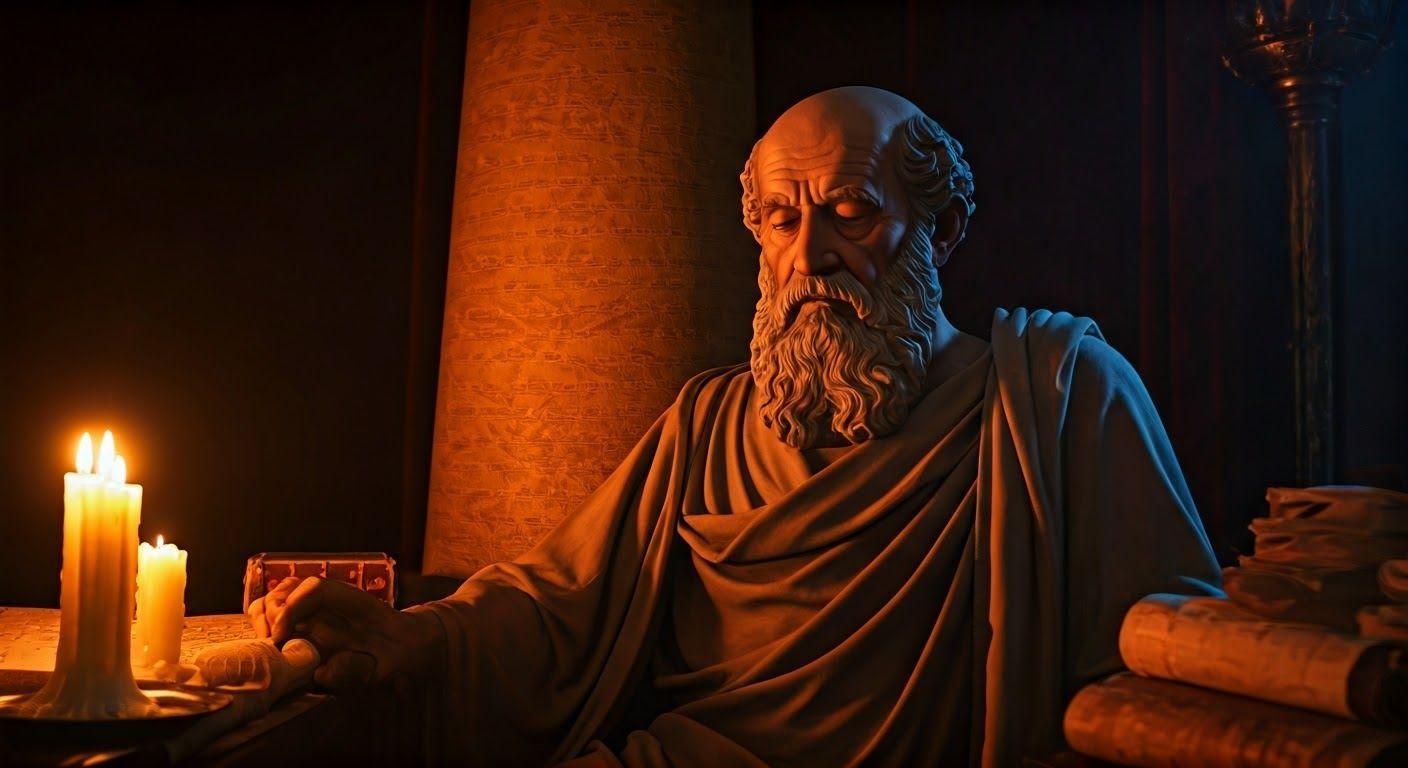
By Ibrahim
•
November 18, 2024
I've had this on my mind for a while: Does turning to Islam, and being a Muslim, allow you to absorb knowledge from thinkers outside of Islam? For many years, I've been an avid reader and student of Seneca. Lucius Annaeus Seneca, in full, raised and educated the emperor who eventually turned against him in the latter part of his life and sentenced him to commit suicide. Yet Seneca, well-known in political circles, left behind a vast body of work. One book I always turned to for advice on how to change my thinking or handle situations was Letters to Lucilius, a collection filled with life lessons. In the high society of ancient Rome, Seneca did his duty, but he had a great aversion to the excesses of luxury—long banquets where guests would vomit in order to eat more, tasting the most exquisite spices. When asked to name the spice that gave his food the best taste, he answered, "Hunger." Seneca taught me to see beyond the crowd's behaviors and the processes that drive them. "If you follow the herd, you’ll always end up in shit," was his life quote. But what began to interest me as I became a Muslim was his thinking about religion. He never denied the existence of God and didn’t feel comfortable with the many gods of ancient Rome. What he truly believed, however, is somewhat unclear. Like much of his life, his beliefs seem to have been neither fully resolved nor entirely mysterious. As a member of the Senate, Seneca had many social obligations, but he loved to contemplate in the quiet of his countryside home, away from the crowds and people. Similarly, when it came to religion, Seneca neither denounced it nor tried to dismantle others’ beliefs. He didn’t uplift it either, but instead offered answers that were so deeply philosophical that they often required time to fully understand. One thing he mentioned often is that a person should live according to their nature—and that man is nature. He may have referred to a Creator, suggesting that you will be more troubled if you don't live in harmony with your nature. In other words, he might have meant that it’s important not to fight against yourself. Or, if you take it a step further, if you're not aware of your true nature, how can you even know what you're battling against? All of nature is created by God, so Seneca wasn’t an atheist. Yet what truly fueled my thoughts on this was one quote, which, after studying his works for seven years, annoyed me a bit for the first time: "Religion is regarded by the common people as true, by the wise as false, and by rulers as useful." And there I sat. My profound teacher, whom I cherished, had made me confused. But when I studied this quote further, one thought shot through my mind: He was not talking about my religion specifically. He may have used it as a metaphor for many things. Actually, his teaching here is quite spiritual. It’s a lesson about the ego and the danger of being swayed by the words of others. In the heat of emotion, you might be offended by such a statement. But thinking with emotions leads to poor decisions that work against your true nature. What Seneca is saying, in my opinion, is this: Common people are content, balanced, and easygoing, and religion is their guide. The wise question everything, which can sometimes lead to doubt, disrupting the peace of mind. Those who hunger for power oppress and cause injustice. The great lesson here is also not to fear what others think of you. If you get caught in fear—especially the fear of death—you become less free. You’ll be able to live your life more fully and enjoy things much better if you're not afraid to lose it. For now, that's my conclusion. Wisdom, meaning being a wise man is one who seeks His answers in the teachings of the Quran. Our creator send down His messengers to warn use our life for His purpose. Planted in our dna he created our nature, our caracter and soul. That brings senecas wisdom close, to almost encourage us to live in harmony with our creator. We cannot deny our own dna. Seneca found it important to teach us to be balanced. Searching in the Quran i found t he Quran reminds us that our creation is a deliberate act of wisdom by Allah, and living according to His guidance is the path to fulfillment and peace. Surah At-Tawbah (9:51): "Say, 'Never will we be struck except by what Allah has decreed for us; He is our protector.' And upon Allah let the believers rely." This reflects the understanding that everything, including the way we are created and the experiences we go through, is part of Allah's plan, and submitting to that plan is essential to living in alignment with our true nature. Difficulties strengthen the mind, as labor does the body. As is a tale, so is life: Not how long it is, but how good it is, is what matters. —Lucius Annaeus Seneca
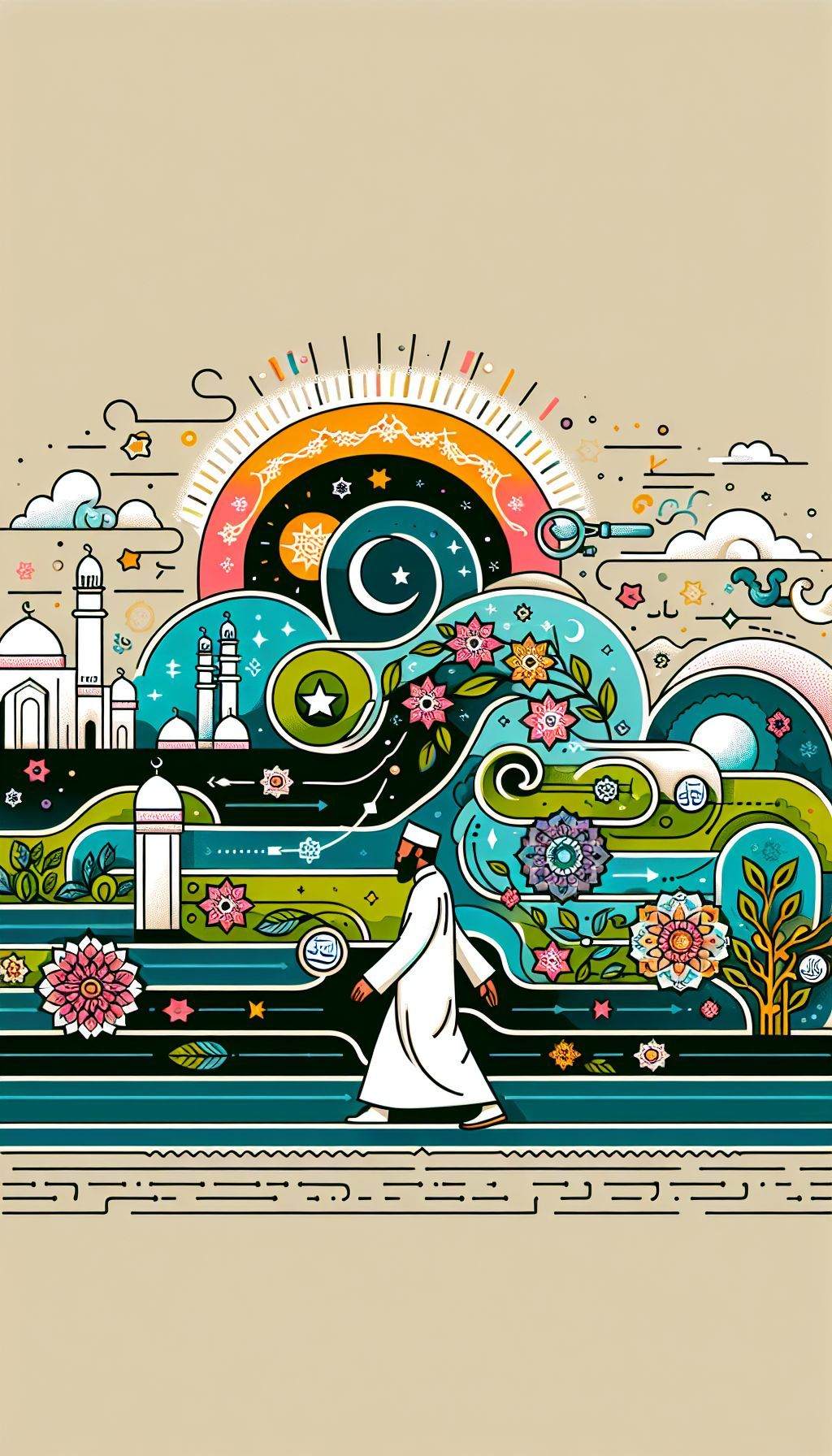
By Ibrahim
•
November 5, 2024
Continuing my journey, the story of my conversion to Islam isnt’t an instantaneous epiphany. Its more of a gradual unveiling series of moments, quiet but profound, that leads me into to a truth of which I feel it was always there, just waiting to be uncovered. Like many, I am familiar with the layered parables and narratives of the Bible, stories that are rich and complex, but that sometimes it felt like trying to navigate a forest of metaphors. In contrast, the Quran introduced me to something else: a light, clear and pure, that speaks to me directly into my heart. For years, I’d been on a spiritual search, a journey to find meaning and peace amid life’s chaos. The Quran, in all its simplicity and depth, stands out for me like an invitation to truth, as if saying, “Here it is, take what you need.” Its message doesn’t require unravelling elaborate stories or decoding allegories—it’s straightforward, like a river that flows, clear and undivided, from a single source. Consider this verse: *"This is the Book about which there is no doubt, a guidance for those conscious of Allah."* (Quran 2:2) In just a few words, it places a solid foundation, saying exactly what its meaning is without fluff or distraction: This is a guide for those who seek, those who are open and willing to find the truth. For me, it became a guide that left no room for ambiguity,with intellectual room to reflect on what the words mean and their possibilities to contribute good for my own life. The Power of Clarity Unlike the Bible’s detailed storytelling—in which, my Lord let’s be honest, it can feel like a family drama spanning generations—the Quran often takes a direct route. It speaks in concise phrases, affirming the truth, encouraging self-reflection. Instead of giving us hundreds of years of historical context, it often goes straight to the moral or the lesson, allowing me to interpret and apply its wisdom to where i stand, the here and now. In a way, it’s like sitting down to read a novel and realizing that every chapter can be the last. The Quran, new as it is for me, holds no unnecessary flourishes, and it doesn’t need those. It respects my intellect, almost as if it’s saying, “You already have the potential to understand this.” It feels like the kind of conversation I’d been waiting for—a talk on truth without endless detours or hidden meanings. Giving the Mind Time to Adapt Yet, embracing this truth isn’t entirely without challenge. I often find myself chuckling at the mental ‘conversion’ required when shifting from one set of holy texts to another. The simplicity of the Quran does, ironically, needs time to sink in . The Bible on the other hand is like a dense and layered novel, where each turn of the page seems to offer another twist in the story of faith. By contrast, the Quran is more like a poem: short verses with depths that grow each time I read them. There are some verses that, despite their brevity, offer insights that linger far longer than their few lines might suggest. For instance, one of my favorites is: *"And We have certainly made the Quran easy to remember. So is there anyone who will be mindful?"* (Quran 54:17) The invitation here isn’t just to read—it’s to remember, to reflect, and to let it settle into my mind and heart. That’s the difference: the Quran invites me into its truths as a partner, not just as a reader. It asks me to be *mindful, to engage with it, and in doing so, to find the guidance I where and in which I need to grow. For Those on Their Own Path If you’re reading this because you’re curious, maybe at a similar crossroad, I’d say this: let the Quran speak for itself. There are countless resources, like *The Study Quran* and the works of Dr. Yasir Qadhi or Nouman Ali Khan, which offer insights for both beginners and seasoned readers alike. There’s a world within the Quran that opens up with each reading. It's like walking through a door, knowing that on the other side offers clarity. In the end, my conversion is not just to a new faith, but to a new understanding—a way to see the world with fresh eyes, where each verse of the Quran offers a moment of peace and reflection. The beauty of the Quran lies not in the length of its stories, but in the truth that, with time, reveals itself through simplicity. So, if you find yourself drawn toward its words, give it the time and space to resonate. As I’ve discovered, the Quran doesn’t ask for more than that.

The Precious Pearl: Guarding and Cultivating Faith in the Teachings of Prophet Isa (Alayhi al-Salām)
By Ibrahim
•
November 4, 2024
The Precious Pearl: Guarding and Cultivating Faith in the Teachings of Prophet Isa (Alayhi al-Salām) As a former Christian, what always intrigued me was that often faith is likened to be a treasure—something rare, valuable, and deeply personal. One of the most profound sayings attributed to Prophet Isa (alayhi al-salām), known to Christians as Jesus, is the idea that once you find true faith—the pearl of real understanding—you should "bury" it to protect it from the world. This message conveys a timeless lesson in valuing and safeguarding one's connection with Allah (SWT), so that no worldly force can diminish it. In Matthew 13:45-46, the prophet Isa ( alayhi al-salām ) says: "Again, the kingdom of heaven is like a merchant seeking beautiful pearls, who, when he had found one pearl of great price, went and sold all that he had and bought it." This teaching is a metaphor for discovering true faith or the Kingdom of Allah / God. Once you as a person realize the value of genuine spiritual truth, you're willing to forsake all other attachments and possessions you have for it. If right 1. The Symbolism of the Pearl in Islam and Other Faith Traditions Prophet's Isa’s (Alayhi al-Salām) reference to our faith as a “pearl” is symbolic in multiple ways. In nature, a pearl is formed from the persistent protection of a tiny irritant annoying piece of sand inside an oyster. Over time, layers of lustrous nacre transform a small imperfection into something beautiful and valuable. This process echoes the journey of faith: it is often born from struggle, discomfort, and the decision to seek refuge in Allah. Just as a pearl’s beauty is hidden within a rough, nondescript shell, true faith often lies within the heart of a believer, unseen and unrecognized by those around them. This hidden nature of faith is both a protection and a reminder that its real value is spiritual rather than worldly. By likening faith to a pearl, Prophet Isa (alayhi al-salām) highlights that faith, like a pearl, requires care and protection from the threats and distractions of our world we live in today. Especially today's modern world. 2. What It Means to "Bury" Faith “Burying” faith doesn’t mean concealing it out of fear but rather signifies guarding it as you're own spiritual treasure. Faith is more than a simple belief—it is the guiding force that shapes yours and mine's actions, decisions, and connections with others. When a believer discovers the depth of true faith, they might realize that its value cannot be overstated. But the journey discovering true faith also includes tests, and faith is often vulnerable to challenges from the world around us, whether they are doubts , desires , addiction , porn, vulgarity or external criticisms, or worse, critisism by loved ones or people close related. To "bury" one's pearl of faith means safeguarding it from influences that can lead to doubt or cynicism. It involves nurturing our relationship with Allah through prayer, reflection, and knowledge, ensuring that our faith is anchored and secure. By protecting this precious “pearl” within, we avoid the trap of seeking validation for our beliefs from others, which can weaken the purity and sincerity of our faith. 3. The Importance of Internalizing Faith Burying faith also emphasizes the need for internalizing it deeply. Prophet Isa (alayhi al-salām) understood the importance of making faith a personal, lived experience rather than a superficial display or theatre act. Faith that remains only on the surface, untested and unguarded, is more vulnerable to being shaken or taken by worldly forces. By cultivating a strong inner belief, we create a foundation that is resilient to both criticism and challenges. In our modern context, where beliefs and values are often publicly scrutinized, the message to “bury” our faith resonates with the need to root ourselves deeply in our convictions, not for show but for spiritual growth. This internalization strengthens the bond between the believer and Allah, creating a faith that is steadfast and not easily influenced. 4. Applying the Teaching to Protect Our Faith Hear me clearly in my call to guard your pearl of faith is particularly relevant in a world that encourages constant validation and public expression of our beliefs. Social media, cultural trends, and peer pressures can sometimes lead us to put our faith on display, making it vulnerable to judgments, misunderstandings, or even self-doubt. Practically, protecting your pearl of faith means being selective about the influences we allow into our lives. It involves finding quiet, sincere moments of worship, studying the teachings of Islam, and engaging in good company that encourages our spiritual growth. When we protect our faith in these ways, we cultivate a relationship with Allah that can withstand trials and grow stronger over time. 5. Faith as a Continuous Journey The journey of a believer is a path of constant seeking and renewal. We strive to live by the Quran and the Sunnah, using the wisdom of our beloved Prophet Muhammad (peace and blessings be upon him) and the teachings of prophets like Isa (alayhi al-salām) as guides. In this sense, burying our pearl of faith does not mean hiding it away permanently but recognizing that faith, like any precious treasure, requires consistent care. At times, it might feel necessary to isolate ourselves from distractions or harmful influences to preserve our faith, just as one would secure a precious pearl. But just as a buried pearl remains valuable and beautiful even when unseen, so too does our faith flourish when it is nurtured internally, away from the eyes of those who might seek to diminish it. 6. Conclusion: Finding Strength in Solitude with Allah Prophet Isa’s (alayhi al-salām) advice to protect one’s pearl of faith invites us even more to find strength in our solitude with Allah. When we recognize the sacredness of faith, we come to understand that its true strength lies in our hearts, in that secret space where only Allah can see. By safeguarding our faith, we honour its true value and allow it to flourish within us in soul, mind and body, away from worldly distractions and trials. Let us take this advice to heart by actively protecting our belief, turning inward for renewal, and seeking to strengthen our bond with Allah each day. In doing so, we not only guard our faith but allow it to shine more brightly within, guiding us on the path to His mercy and light. Ibrahim
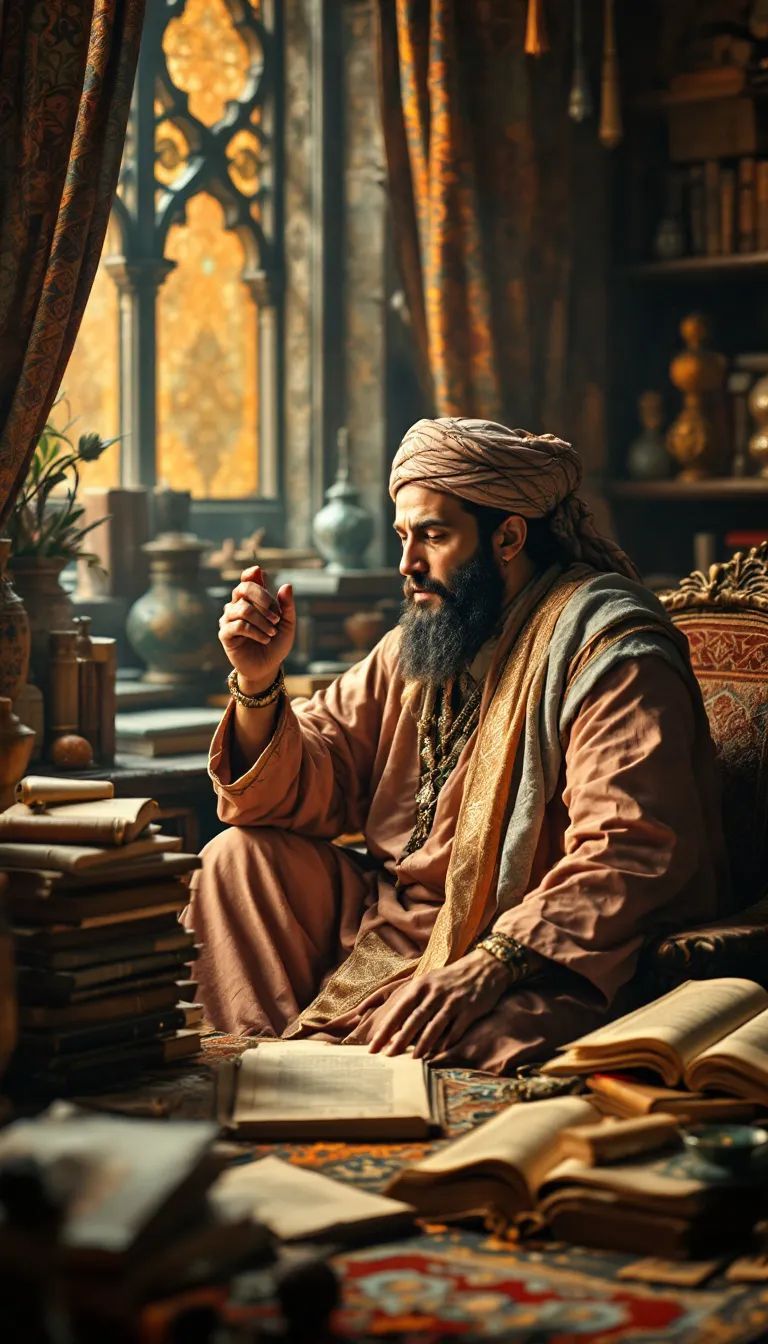
By bas meijers
•
November 3, 2024
Are you searching for deeper meaning in a world full of noise? In this thought-provoking article, the author shares his personal quest for truth, justice, and understanding—an exploration that challenges the superficiality of modern life.
Through powerful metaphors and insightful reflections, discover how one person's struggle against the “crumbling wall” of societal expectations has led to profound insights about personal growth and the importance of inner conviction. As they dive into the wisdom of great thinkers, they reveal how easy it is to get lost in a sea of opinions while neglecting our own authentic voices.
Join the conversation about breaking free from the confines of external validation and nurturing your roots for a richer, more fulfilling life. If you're ready to rethink your approach to knowledge and self-awareness, this article is a must-read!

By Ibrahim
•
October 22, 2024
A former Catholic, who once spent years in a monastery seeking spiritual fulfillment, became disillusioned by the hypocrisy and rigidity he found there. In April 2018, he traveled to Istanbul on the Orient Express, where a chance encounter with Sufi dervishes and a visit to the Blue Mosque changed his life. In a quiet moment of prayer, he felt the presence of Allah and realized his search for truth had led him to Islam. That day marked the beginning of a new chapter, filled with faith, peace, and purpose.

By Ibrahim
•
October 20, 2024
The more i read the surahs of the Quran and related writings, the more and more i find out it indeed is a religion of peace. It was arrogance all around inside of me thinking i was preparing becoming a muslim reading books about islam , also me, i was infuenced over the years that ut was a " scary" religion. The unstoppable media machine also influenced my thinking about islam and was still present at the background during my preparations to make a decision. A new conscious rose up and that was that there were a few trains to catch. When you choose for Islam you dont only choose for the religion, you choose for a new path in life called becoming a good muslim. Realising that was a bit intimidating in the beginning, and to be honest it still is. Right now i am far from being a good muslim taking the first babysteps by contacting the mosque, did the Shahada what brought me a great new friend. Doubt rose sometimes thinking i might have loved the outside of the religion, the beauty of the mosques, my personal preference for the beauty of woman of the middle east, islamic art and other things. So, i made a conscious decision not to shout out my conversion off the roof, try to provoke or get stuck in wicked discussions. It was hard, but i had to be honest to myself too not too think i know how peole around me would react. That would be judgemental and wrong too. Offcourse i wasnt at a point of no turning back, i noticed i was standing in the middle of that bridge from being Bas to become Ibrahim. My partner, who went to dinner with her best friend said, you get greetings back but i didn't told her about " that". My neighbour who comes for a coffee sometimes made jokes about muslim people, and a few others look at my rolled up prayer rug which got a place in the corner of our living room, knowing me and my and my iron will a bit better seem to make the choise not to ask anything. What was a advantage for me because the physical part of the prayer is still a freak show and i am doubtly curious how my brothers in the mosque are gonna help me with that when i start attending half November. Even doing the wudu ( the washing before prayer ) is very confronting how inflexible this 50 year old body is with a mayor heart condition. Who reads this, kindly pray for progress in that. So to be honest, nothing negative so far. Also the years of contemplation before thought me one lesson. You never suffer ( read emotional influenced by getting agitated. angry etc ) if you are aware its not their actions what bothers you, whats bothering you is your own response to it. That you can control, their behavior not.

By Ibrahim
•
October 13, 2024
Tips to Overcome Difficulties That Keep You Away from Converting 1. Family: While some parents may be indifferent, others might provide support. However, for many Muslims, family dynamics can lead to chaos, aggression, and verbal disagreements. If family influence significantly hinders your ability to visit a mosque or convert, remember this: Their reactions are rooted in their own emotions and experiences, not in your desire to embrace Islam. By shifting your perspective in this manner, you can prevent yourself from becoming ensnared in discussions—or worse, debates—with those who are more intent on expressing dissatisfaction than on having constructive conversations. Moreover, understand that exploring a new faith is not a crime; you are not required to justify every choice you make. Consider your personal journey as a heartfelt gift for your family, but revealing the nature of this gift too prematurely can ruin the element of surprise. In closing, I urge you (provided you are of an appropriate age) to take control of your own decisions. Reflect on why you let the opinions of others, including friends and family, influence your choices. Your thoughts and ideas are uniquely yours. What reasoning leads you to believe that the viewpoints of others should hold such weight that they stifle your personal growth? Caring for your own soul is impossible if you remain constantly focused on the thoughts and opinions of others. Additionally, those who readily sharing negative views often lack deep insight. In such instances, you are encountering a defensive response instead of engaging in rational discourse. Distance yourself from these interactions, keep your demeanor calm, and avoid futile arguments. It is entirely acceptable to exit a situation peacefully and without confrontation. Always prioritize your own well-being in these circumstances.
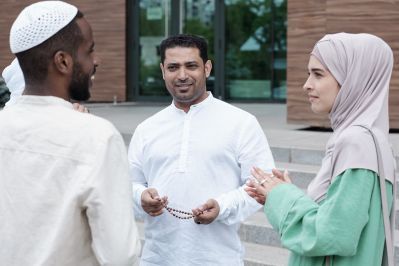
By bas meijers
•
October 10, 2024
Behind my wish to convert wasa very clear reason. I wanted change but couldnt change. Being 50 at the moment of conversion i was stuck in habits and routines. Bad habits and bad routines, yet it is difficult to step out of that high speed train called life and just change. Even if it's not the destination you had in mind, you got to have the guts to take the next stop and get out, not knowing where u are and ask the way. Ask for direction. Or you get lost and resolve in the same habits and routines. For me it took almost 6 years before i realised i needed help. In had bought and reselled many Qurans, tried to read books that seemed important, but it didnt happen. Yet the need to change was getting more and more urgent. My work, businesses, working 90 hours a week, alcohol, bad food habits, pills to keep going, familly problems. And a slightly more urgent problen. After faling down a day it seemed my biological heart had became a ball minced meat, and in three months, wether i wanted or not, my life was upside down. Again there was a need for change, to hold on that inner peace, and lay of shit that wasnt my monkey so not my circus. With that i mean most friends and familly. But how move on in faith ? For me that meant i remembered the info centre in the blue mosque, i looked them up on instagram, sent a dm, and that was the first push for change A videocall with a volunteer of the infocentre, a joyfull girl with a sophisticated sharp look at poeple talked with me for 45 minutes. We did the shahada right away and i had planned a trip to istanbul anyway so said, see u there ! If any cliche is true is that after such a moment, surrender to a spurital moment with the help of others everything changed. I became for what they call "light footed" in the walk of life. She arranged contact with a local mosque here, and i will not only be gratefull for ansering my call, no woman in my life had ever such a big influence on the quality of my life, a care for my being. As i write this, we havent met again yet to thank her. So, this will be continued.





